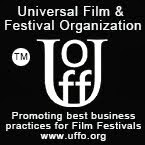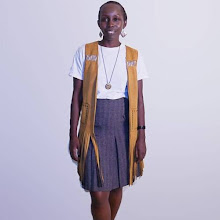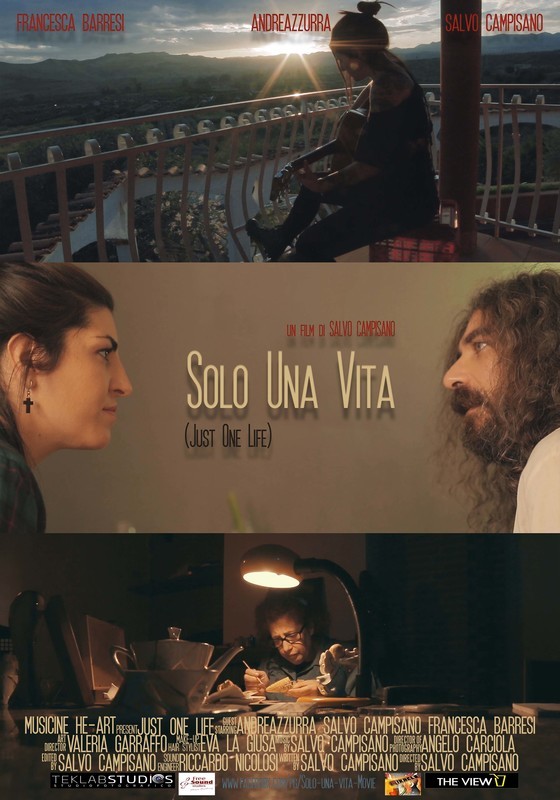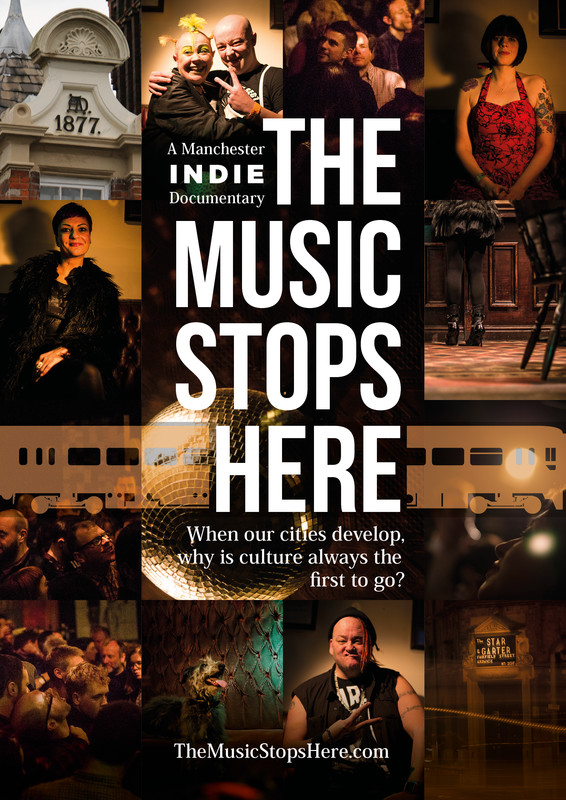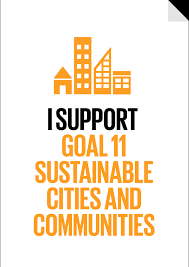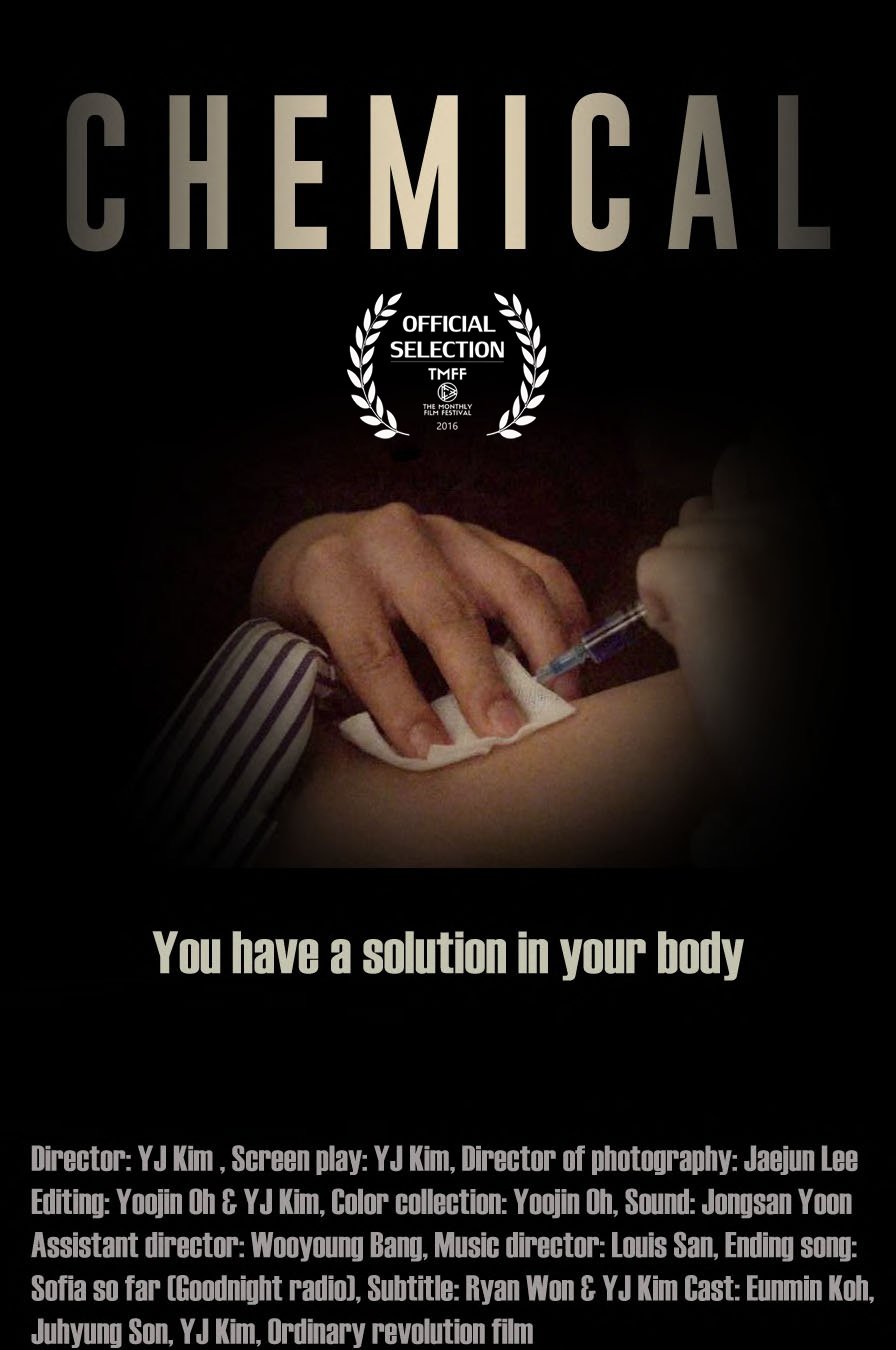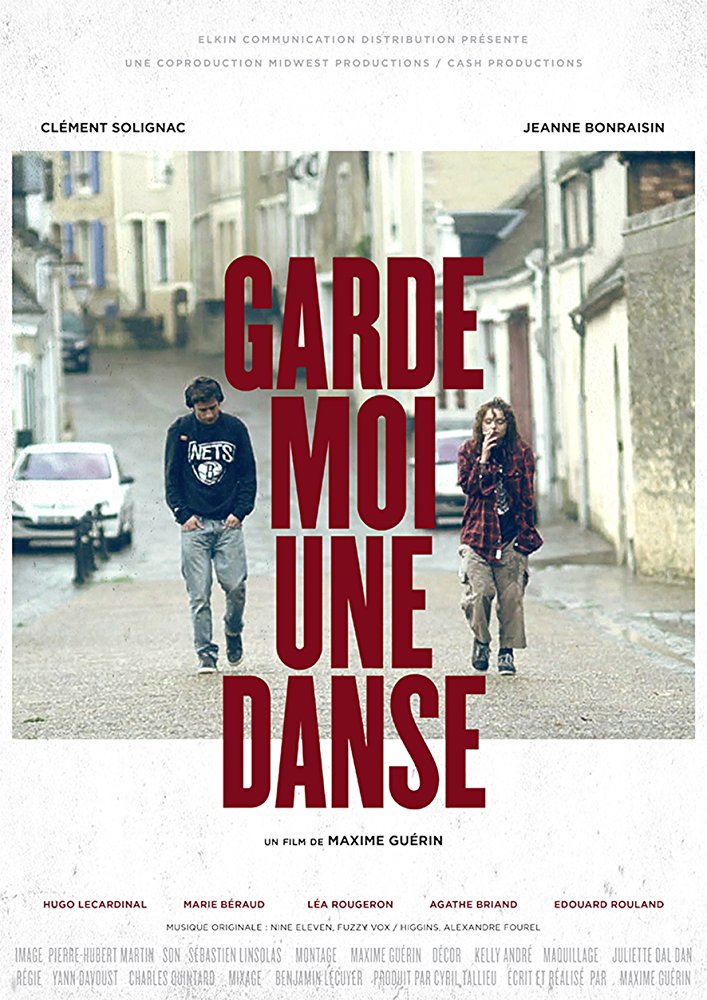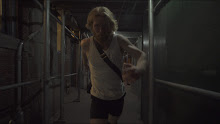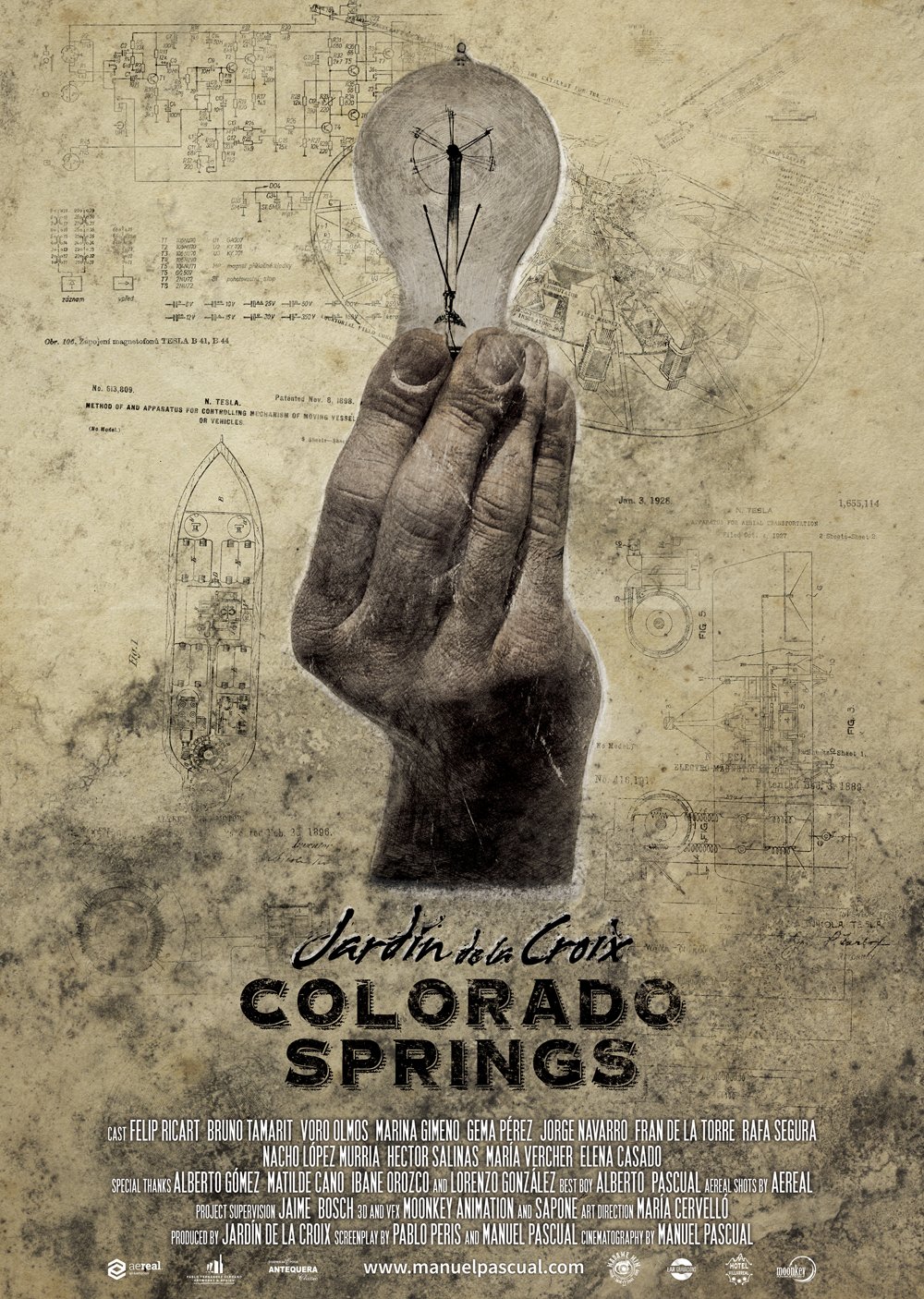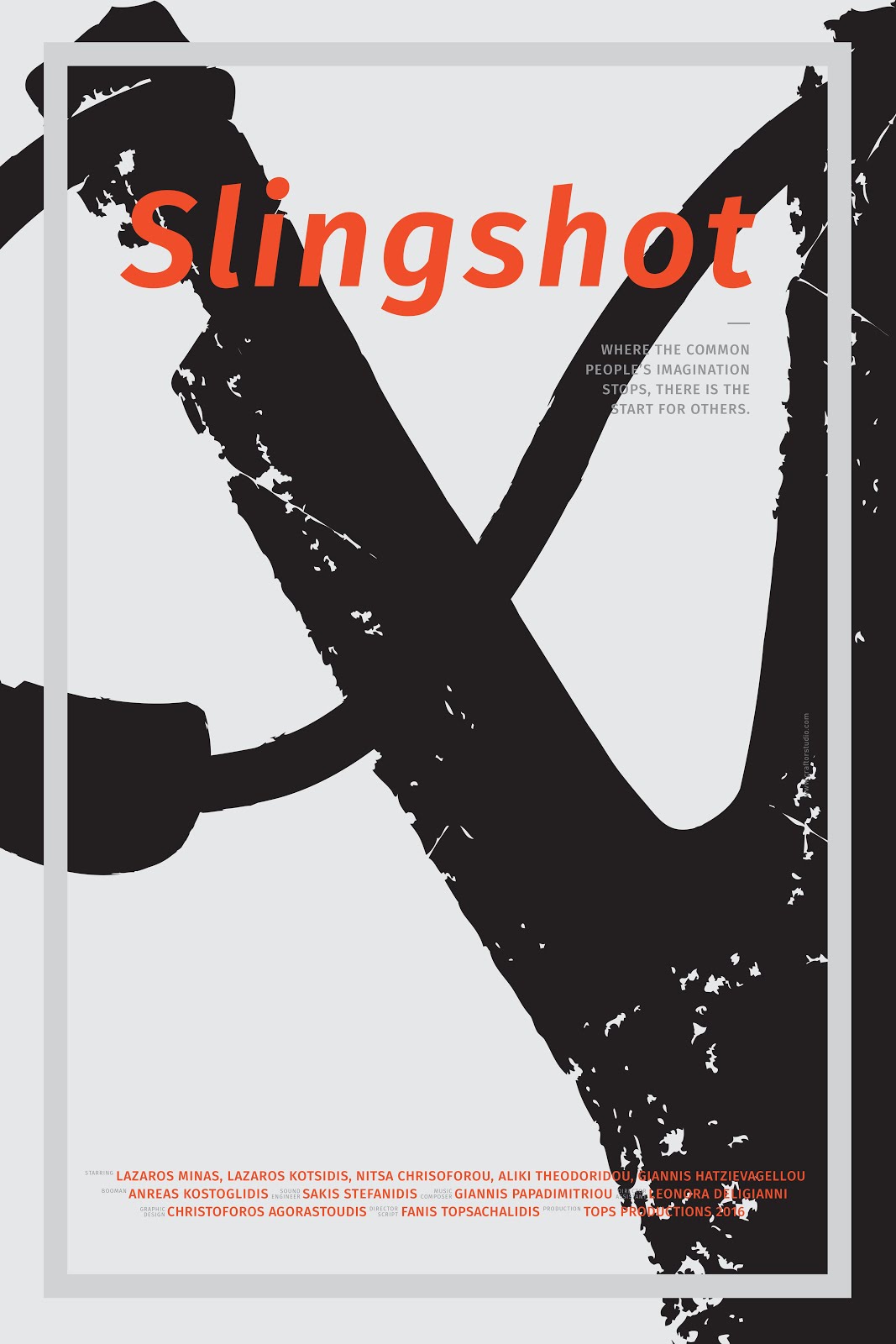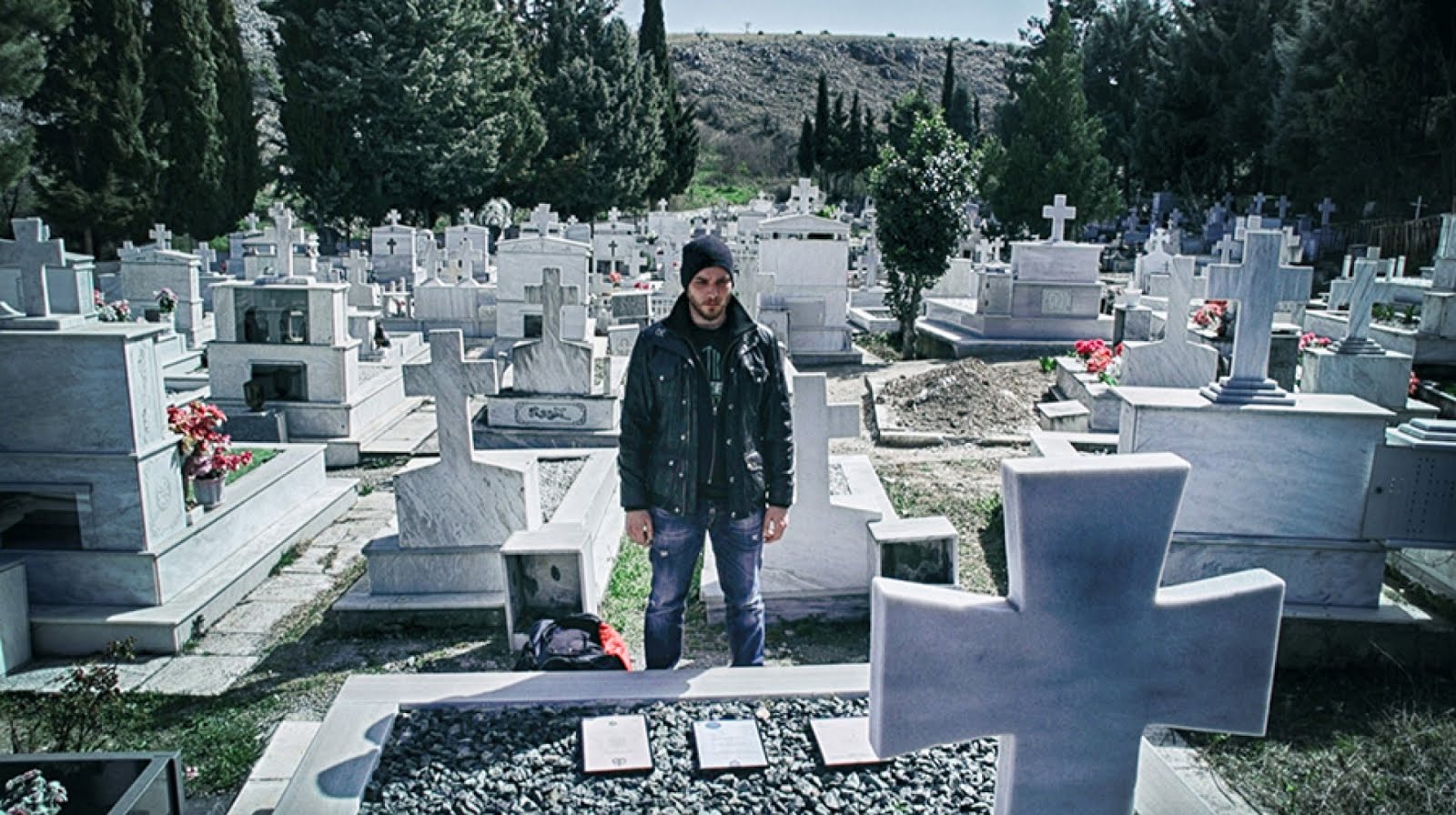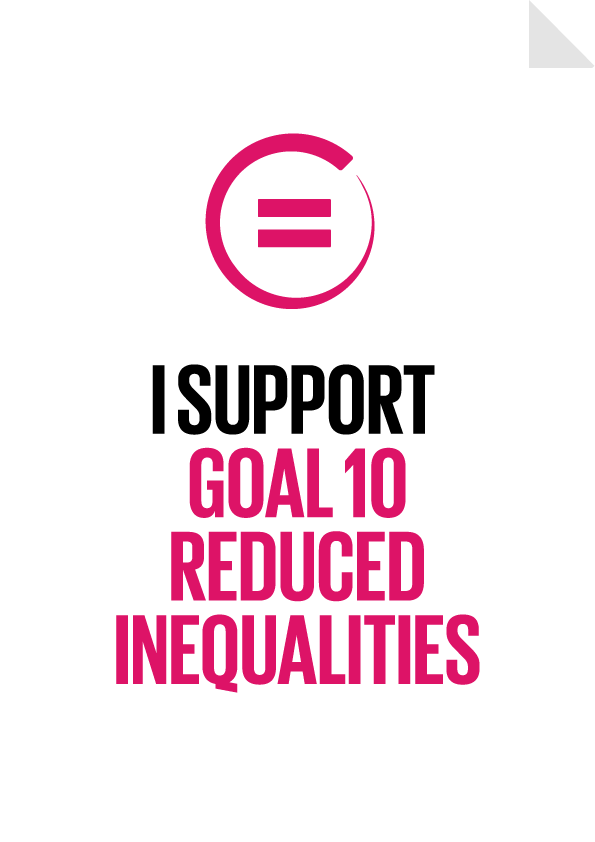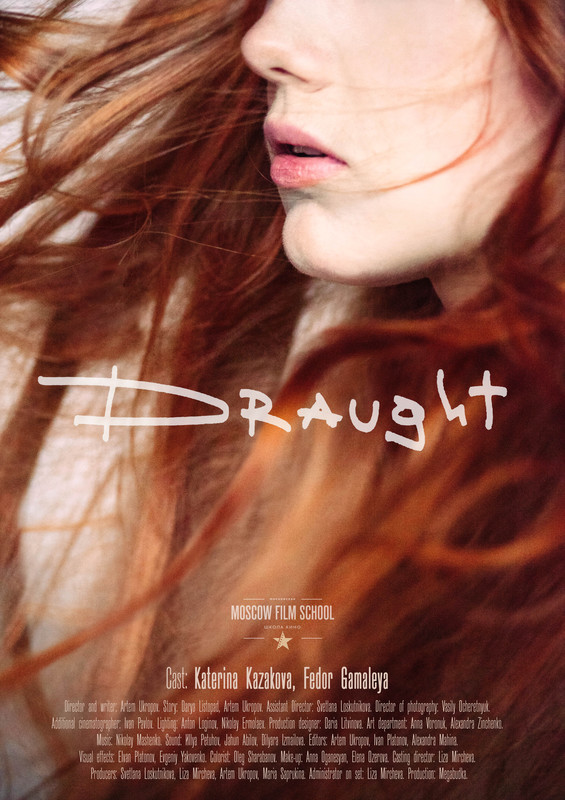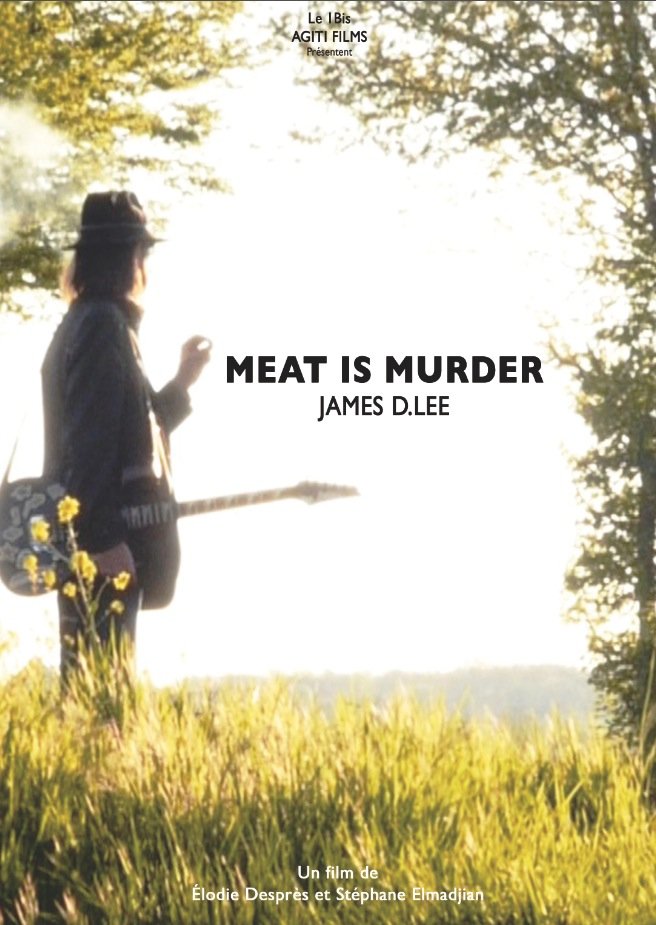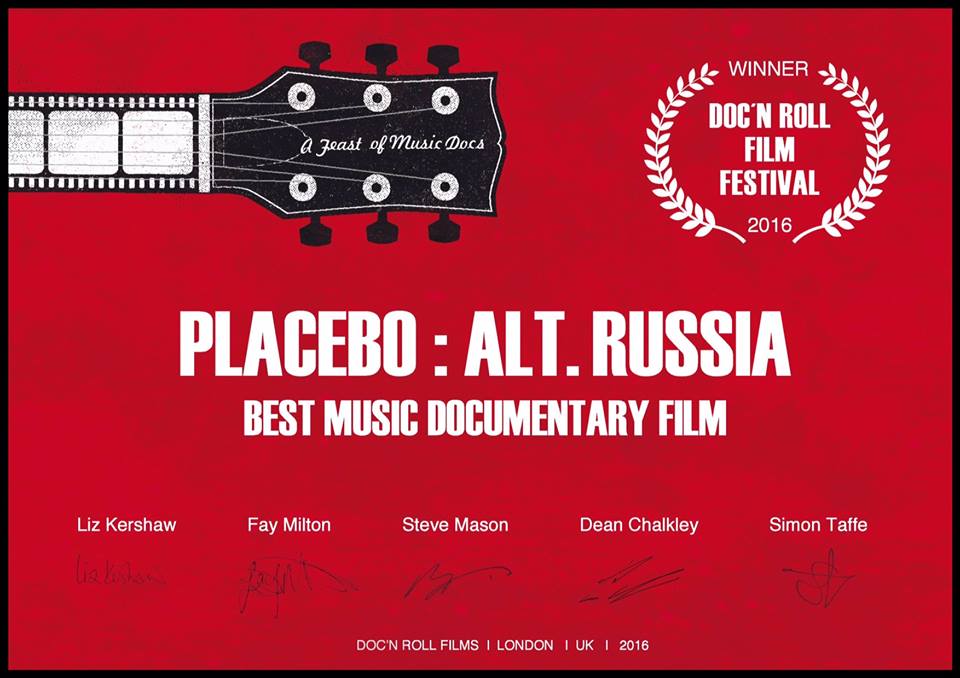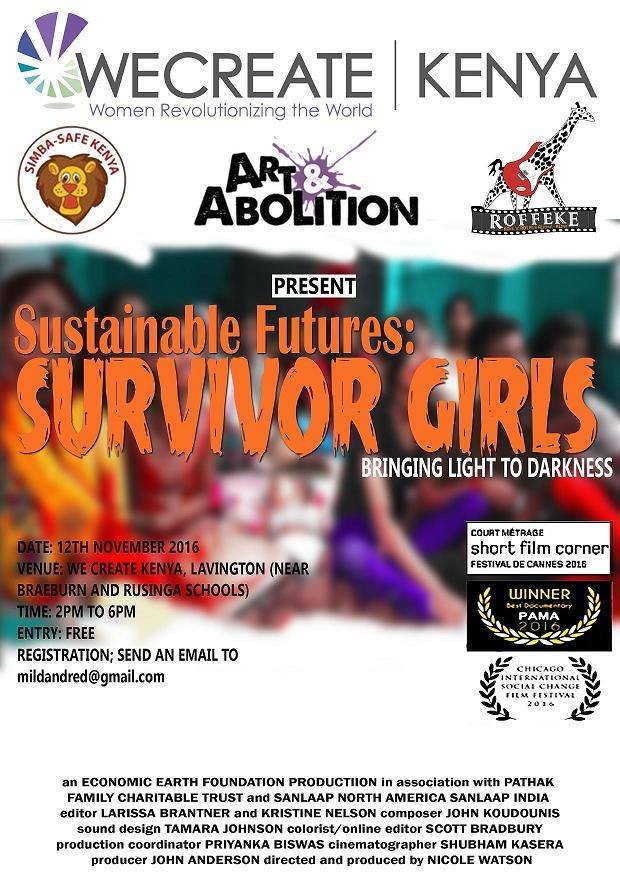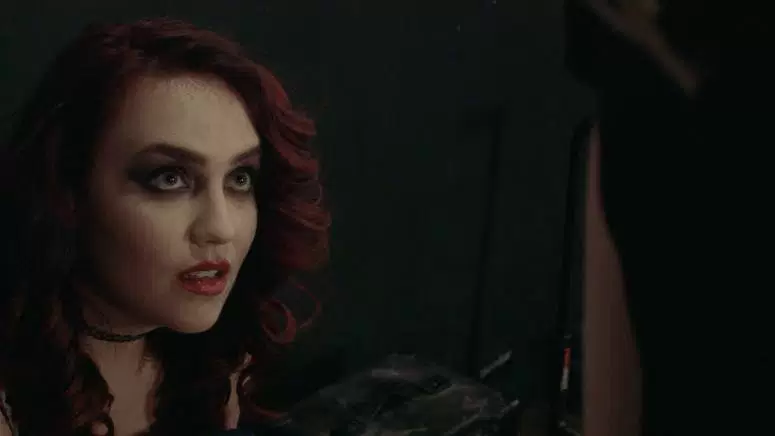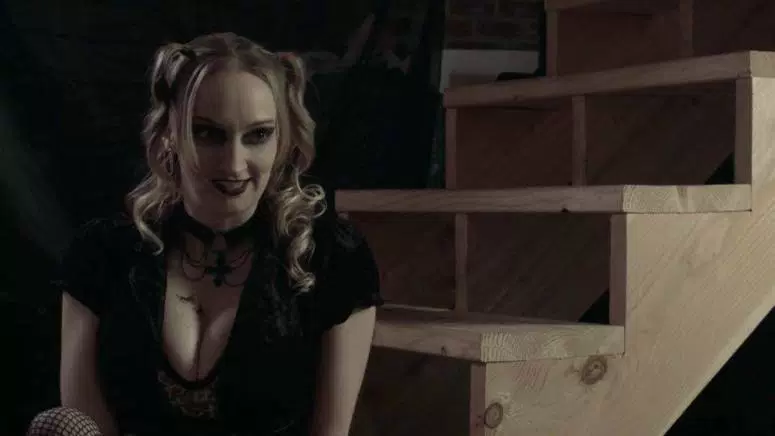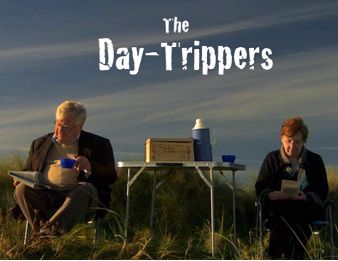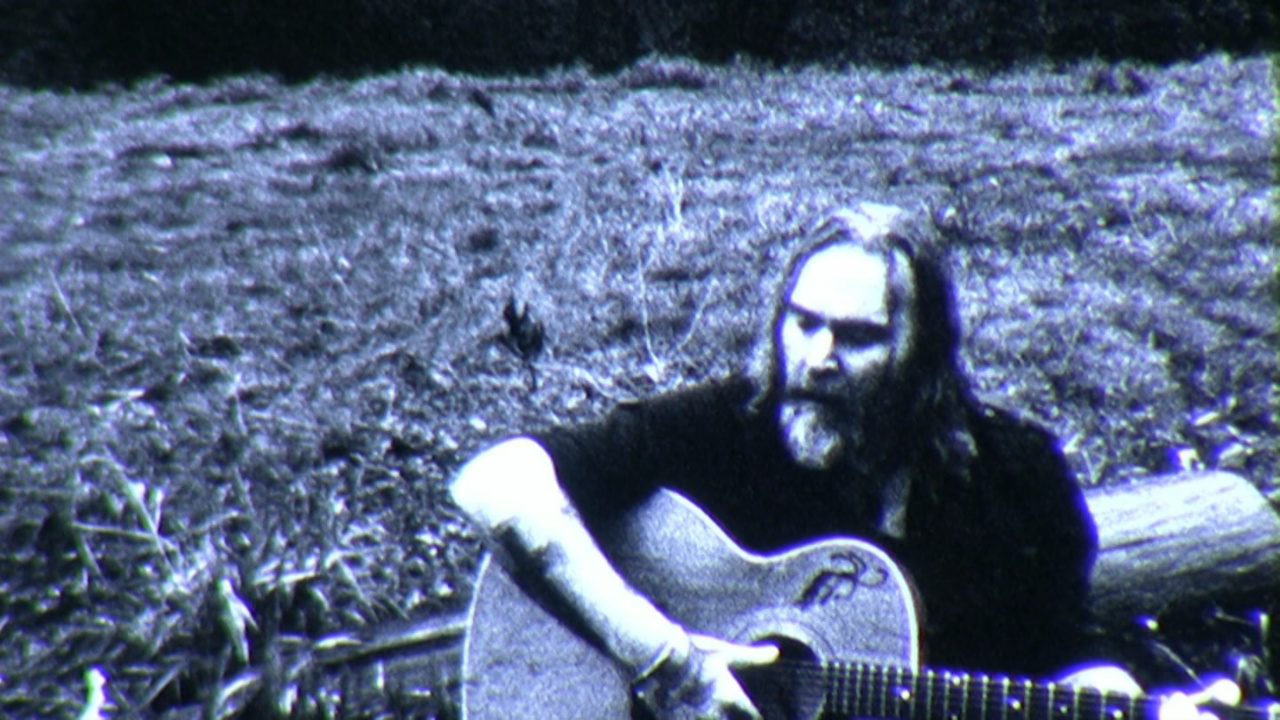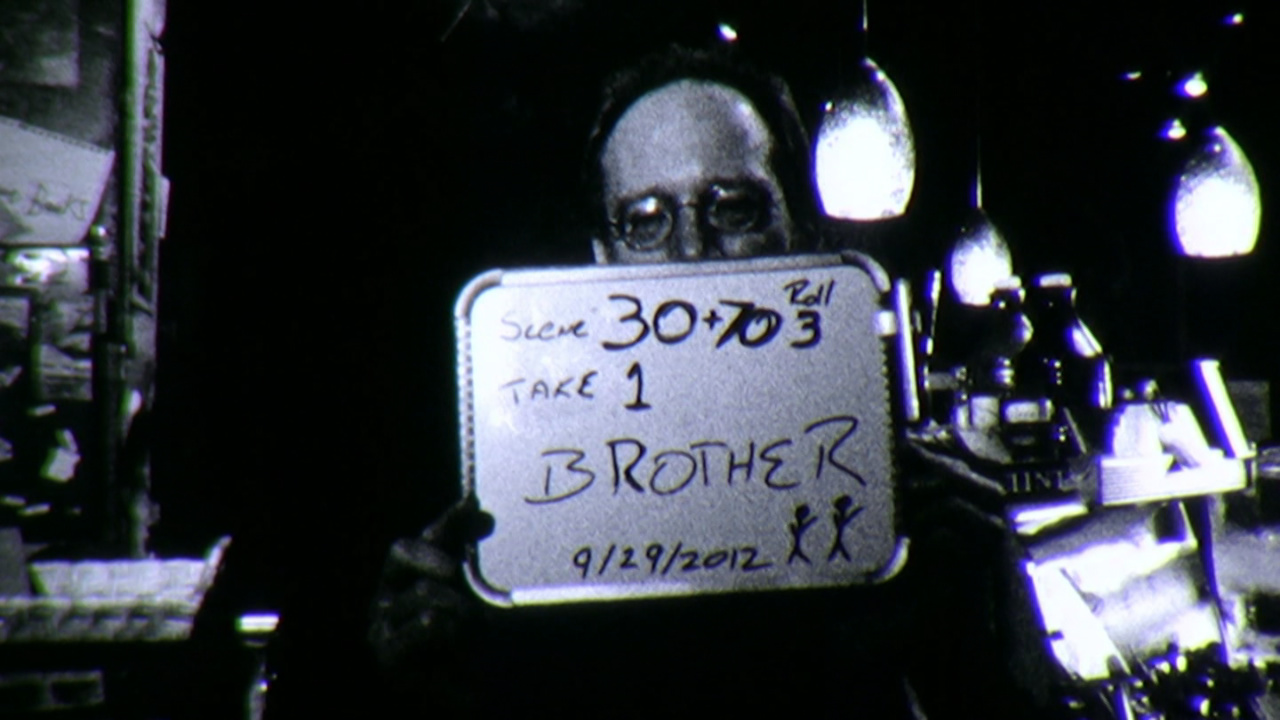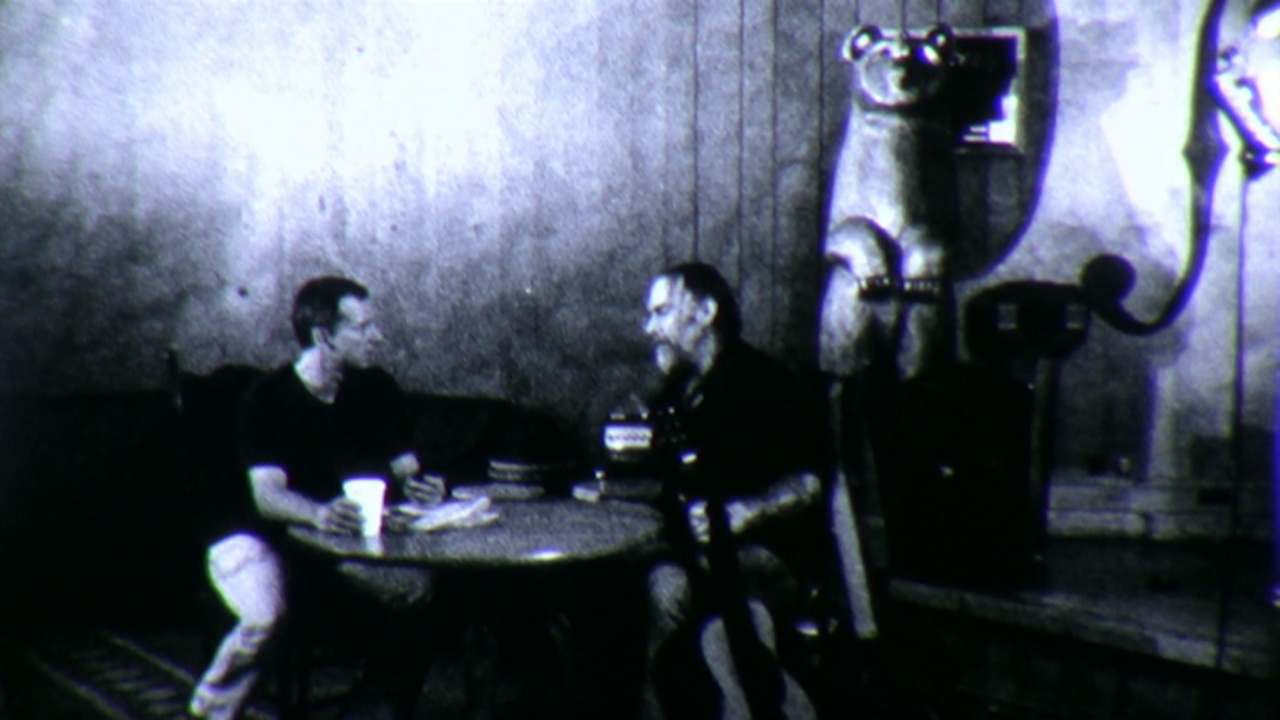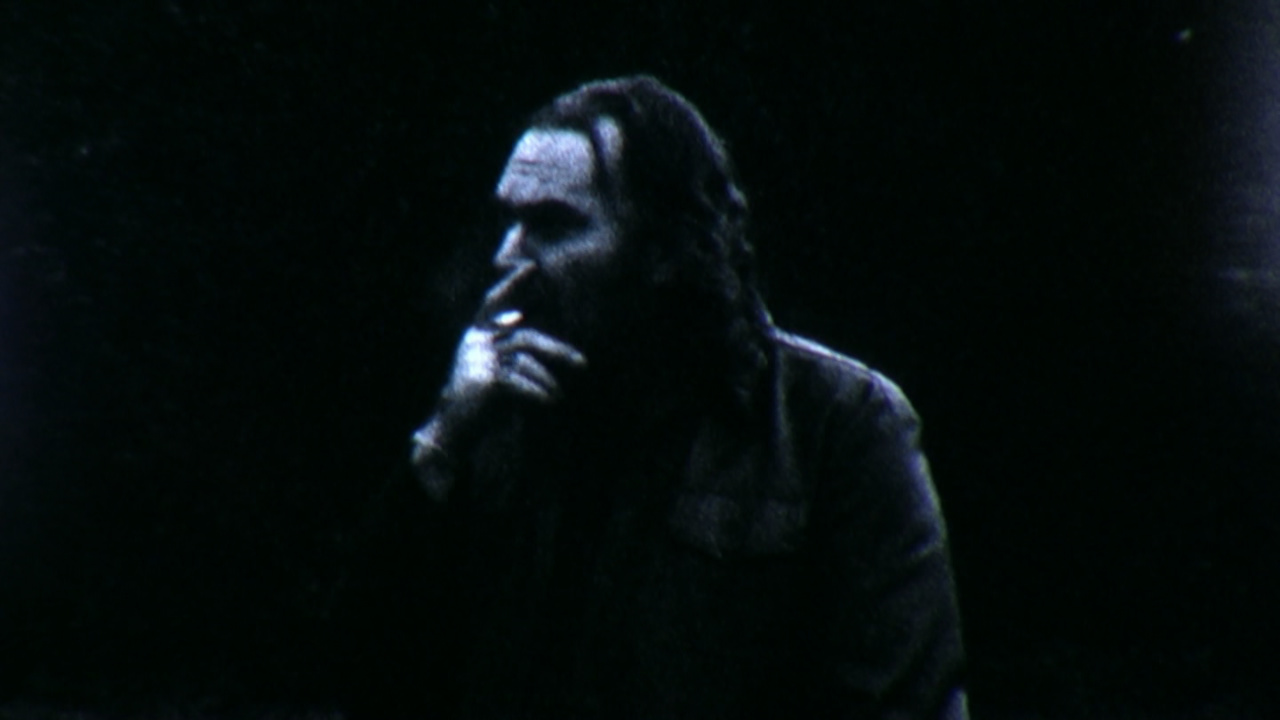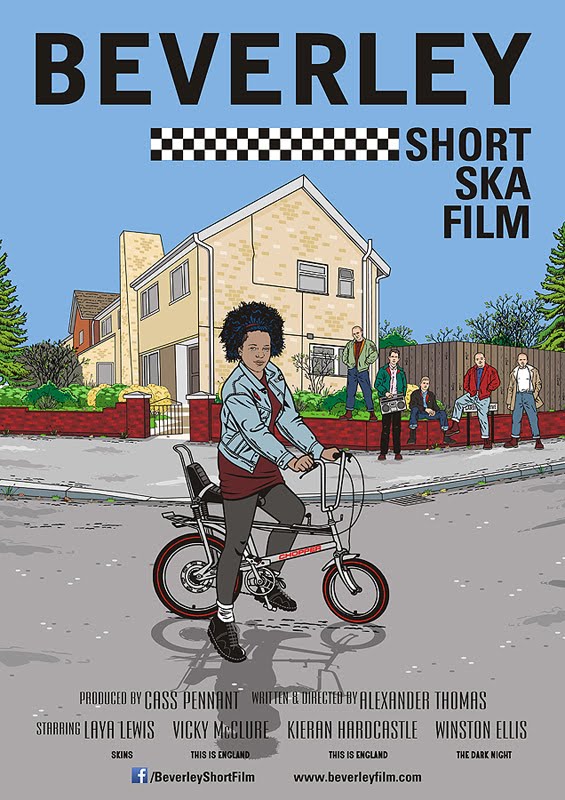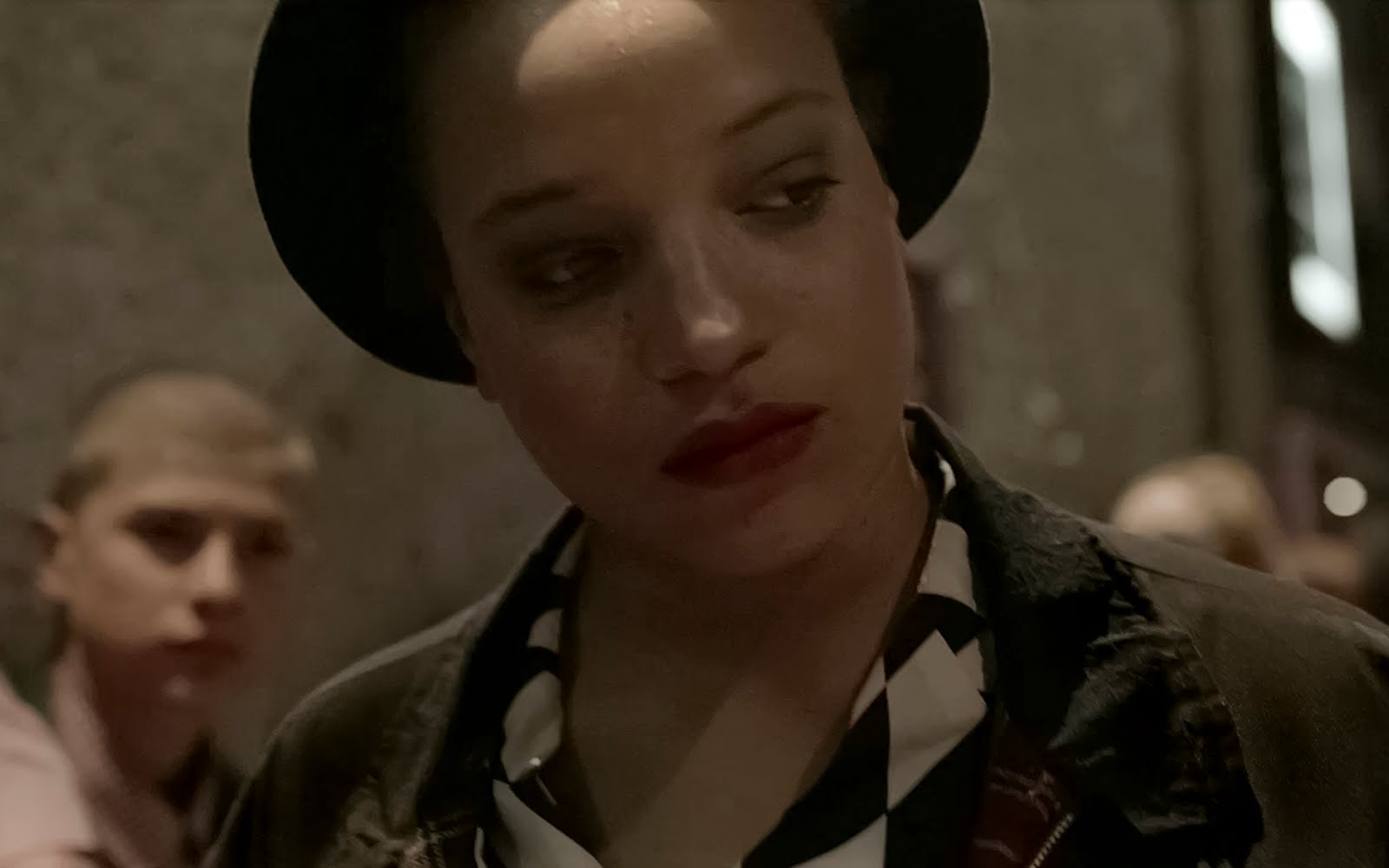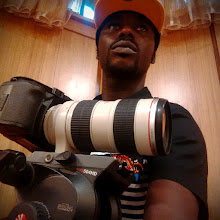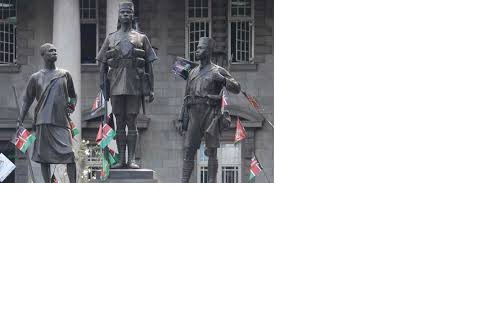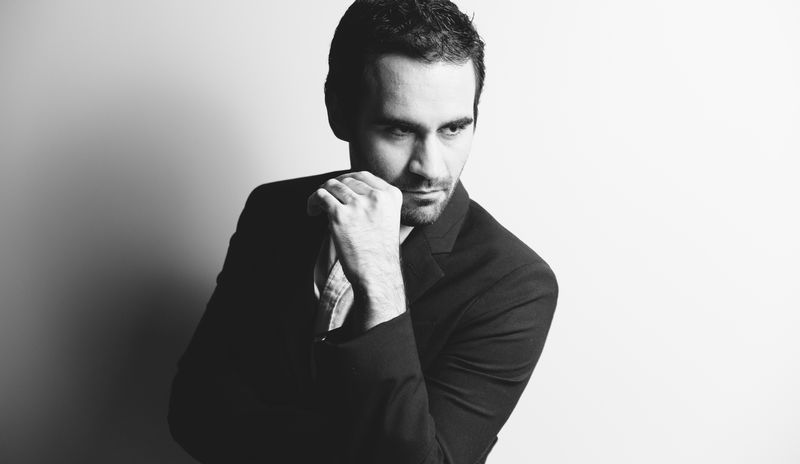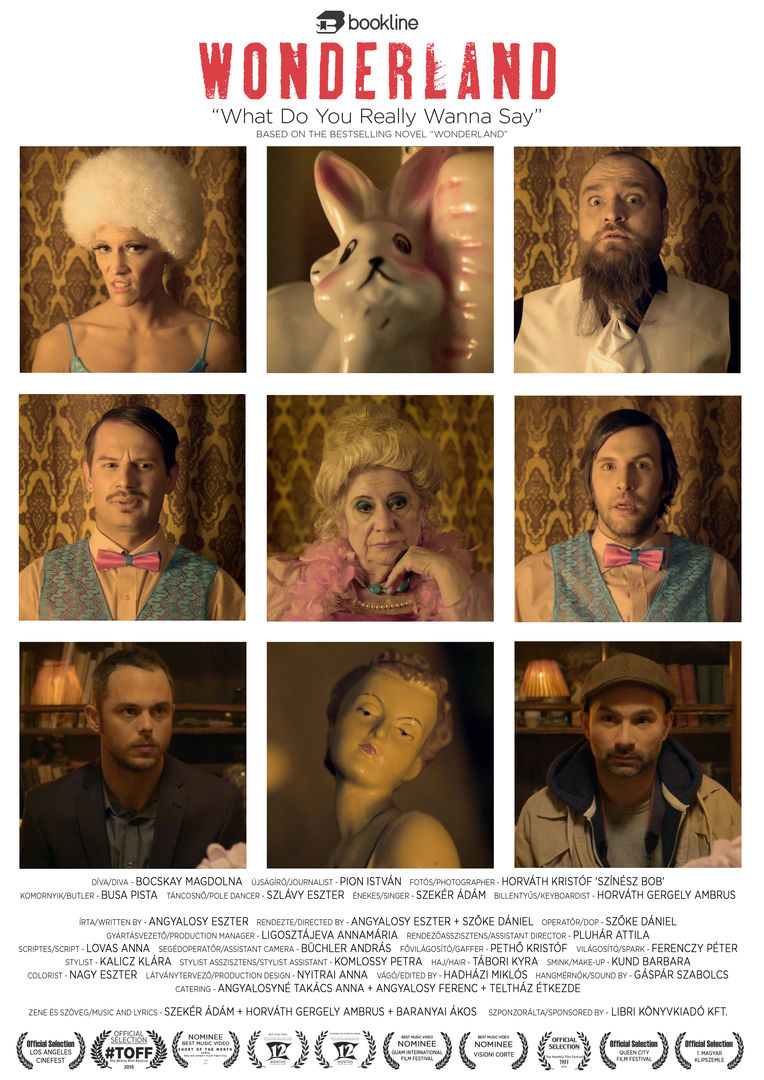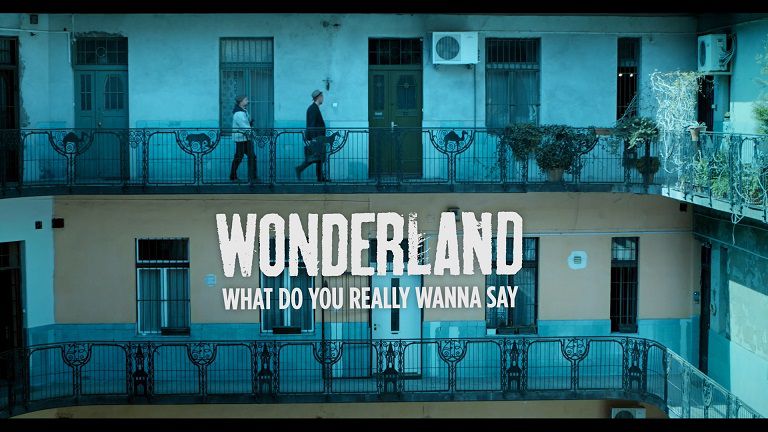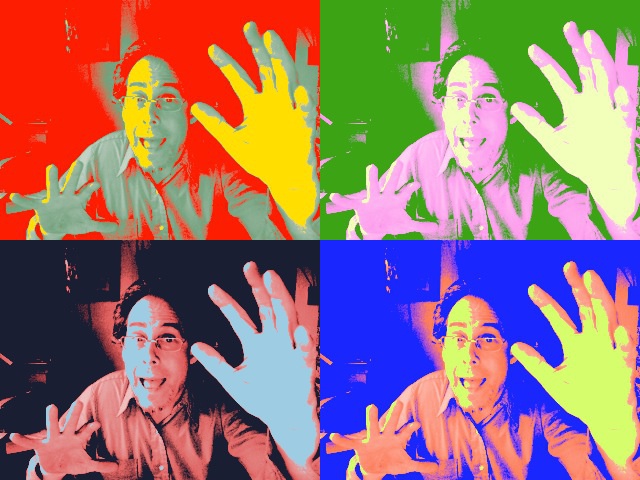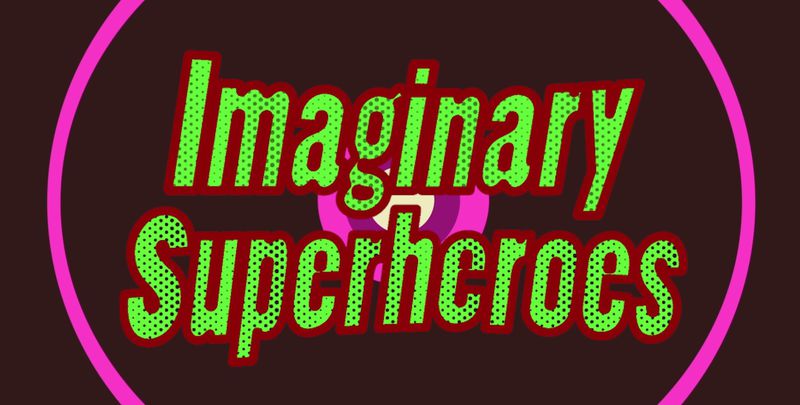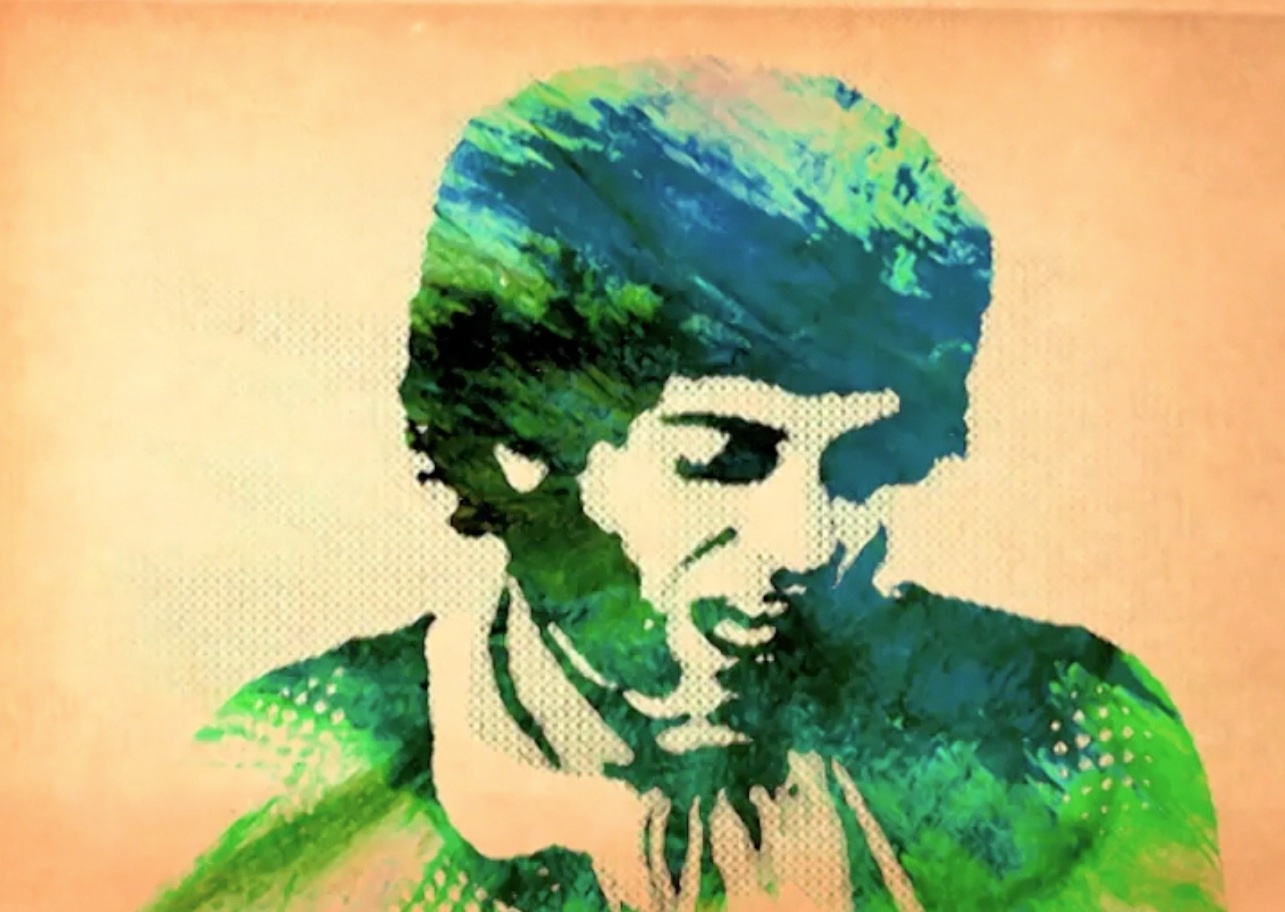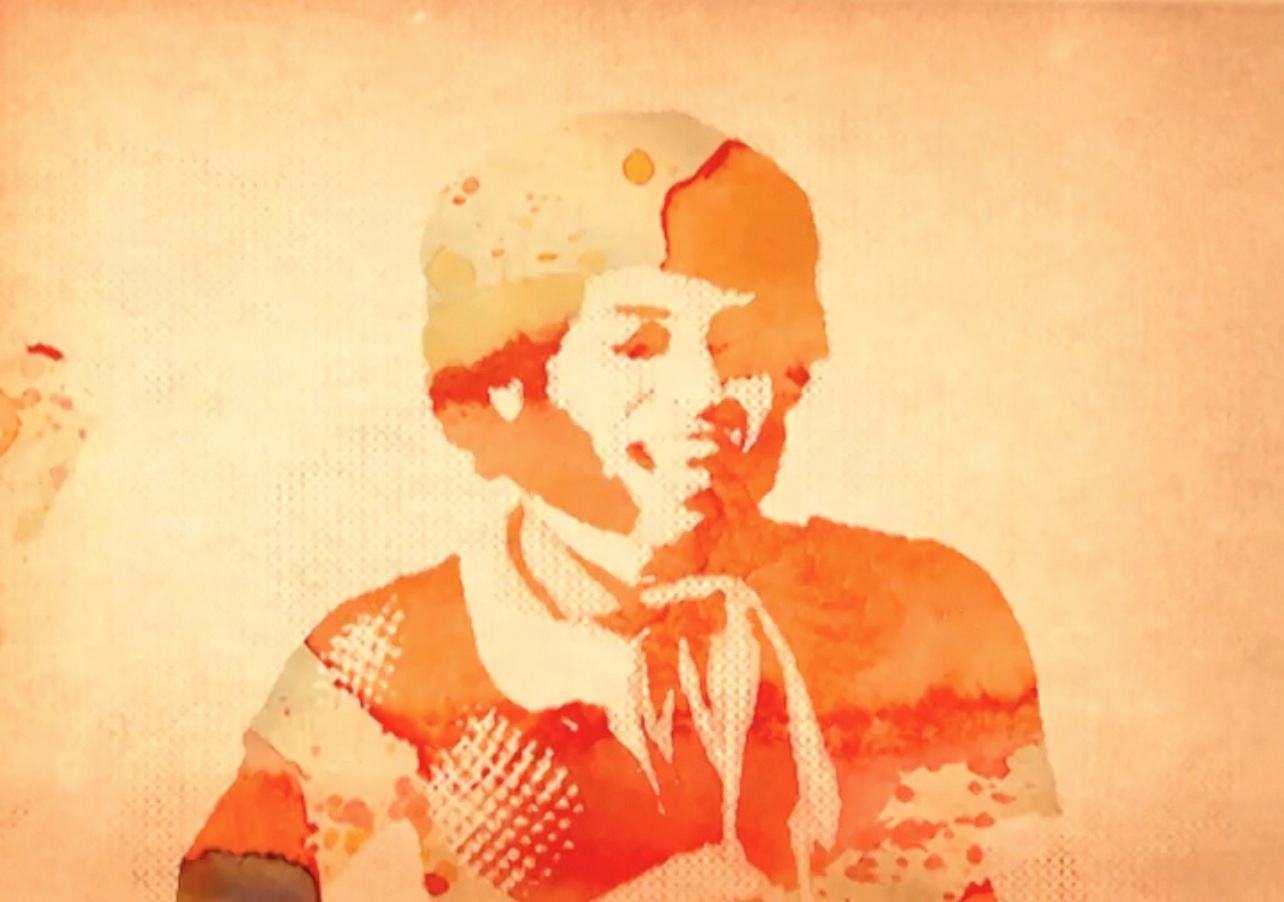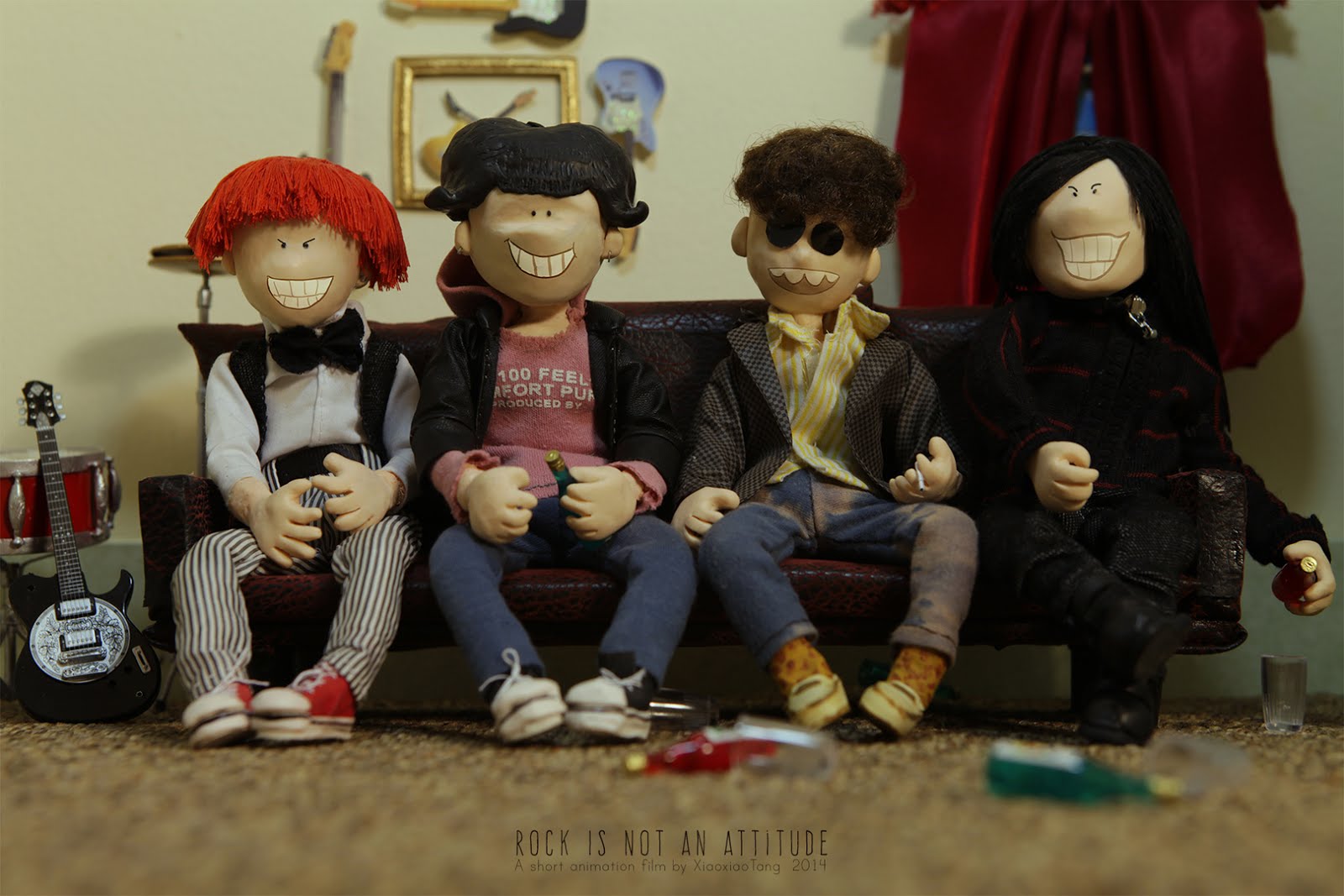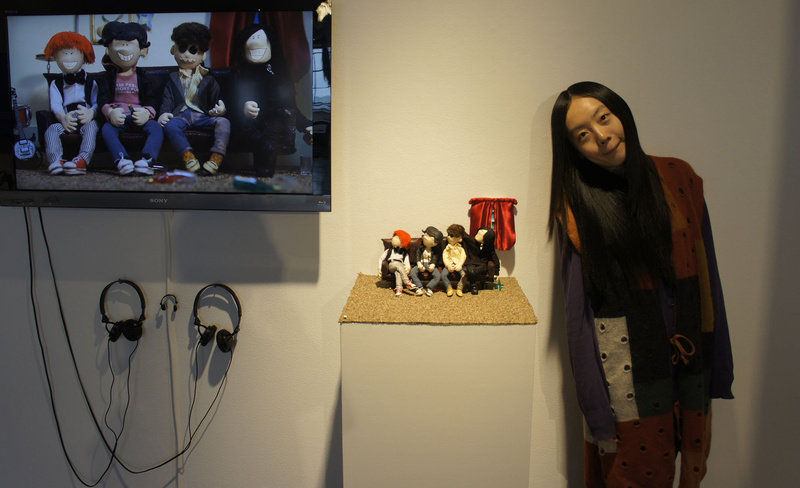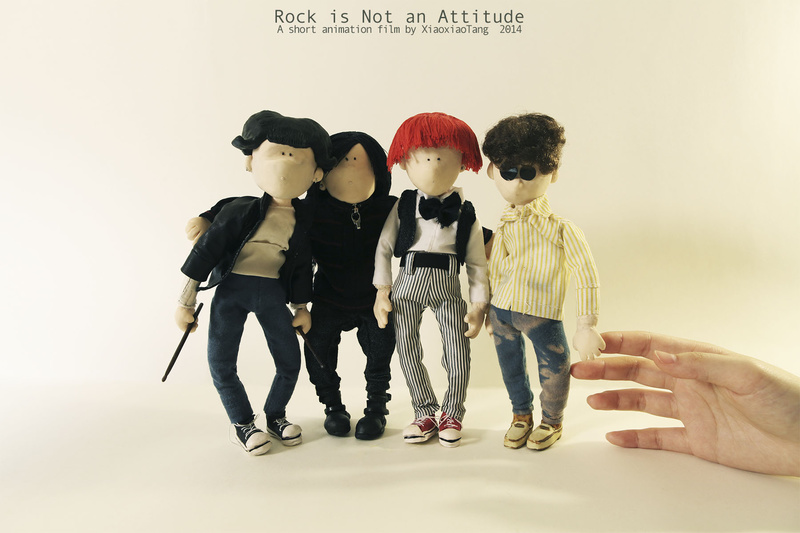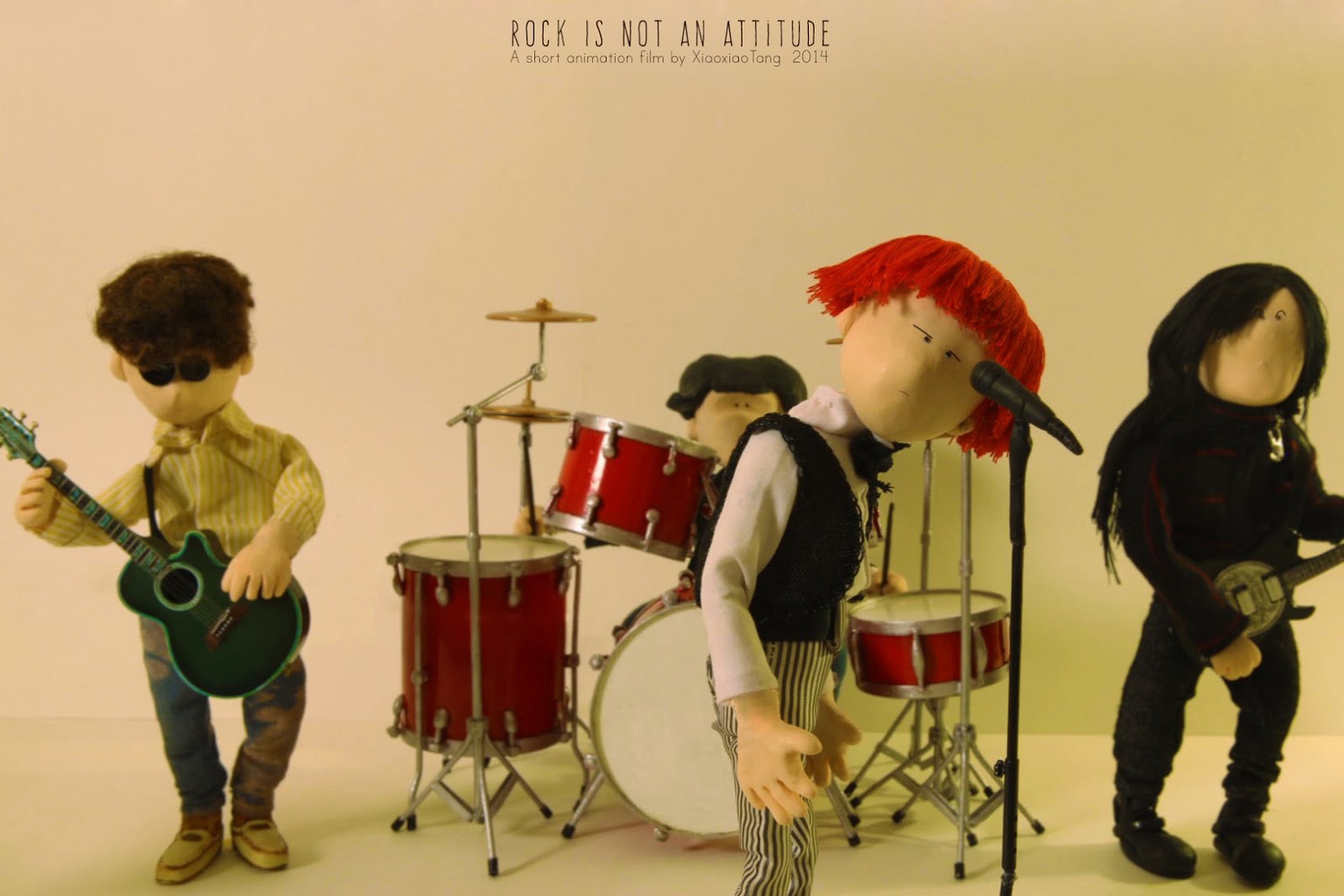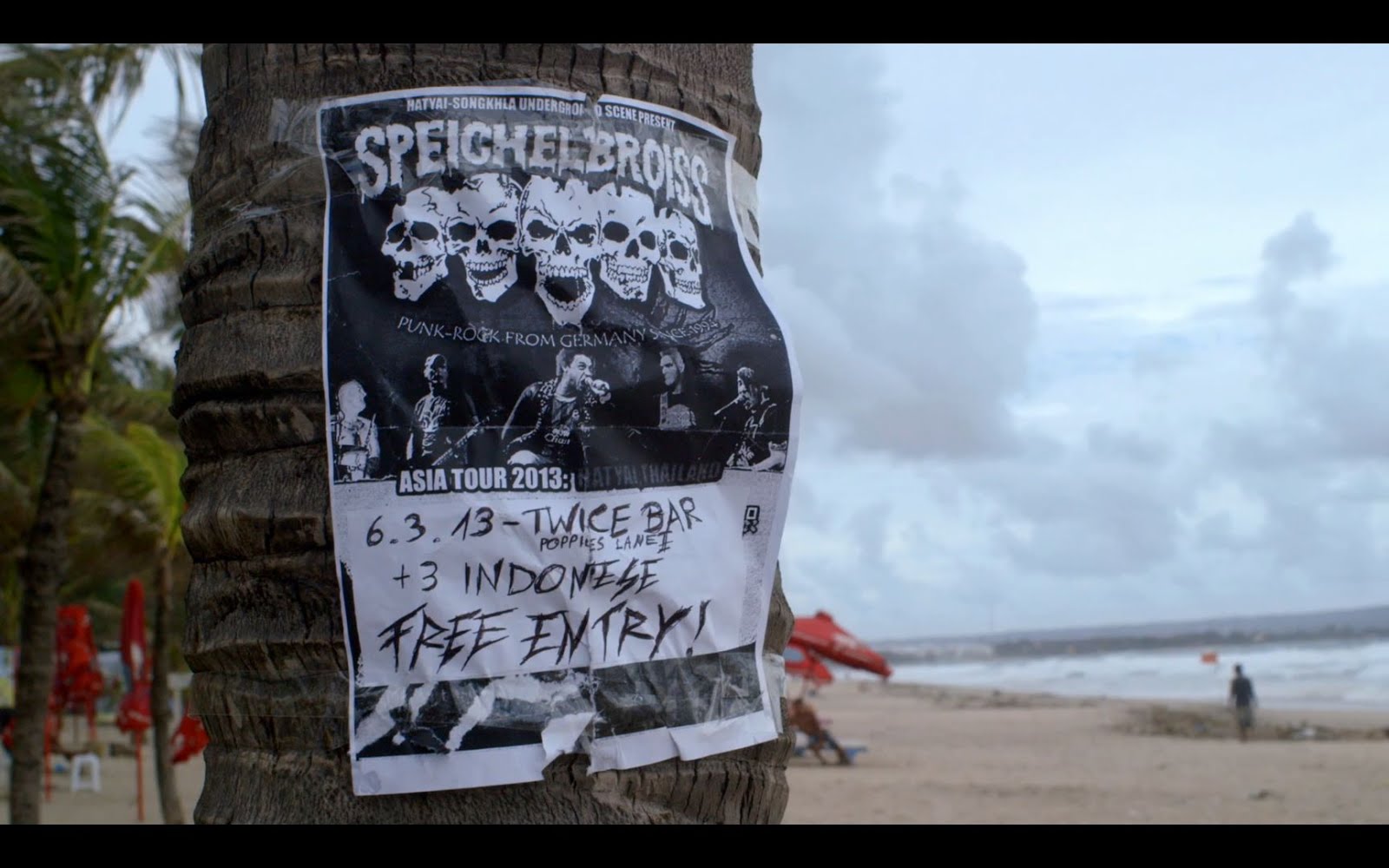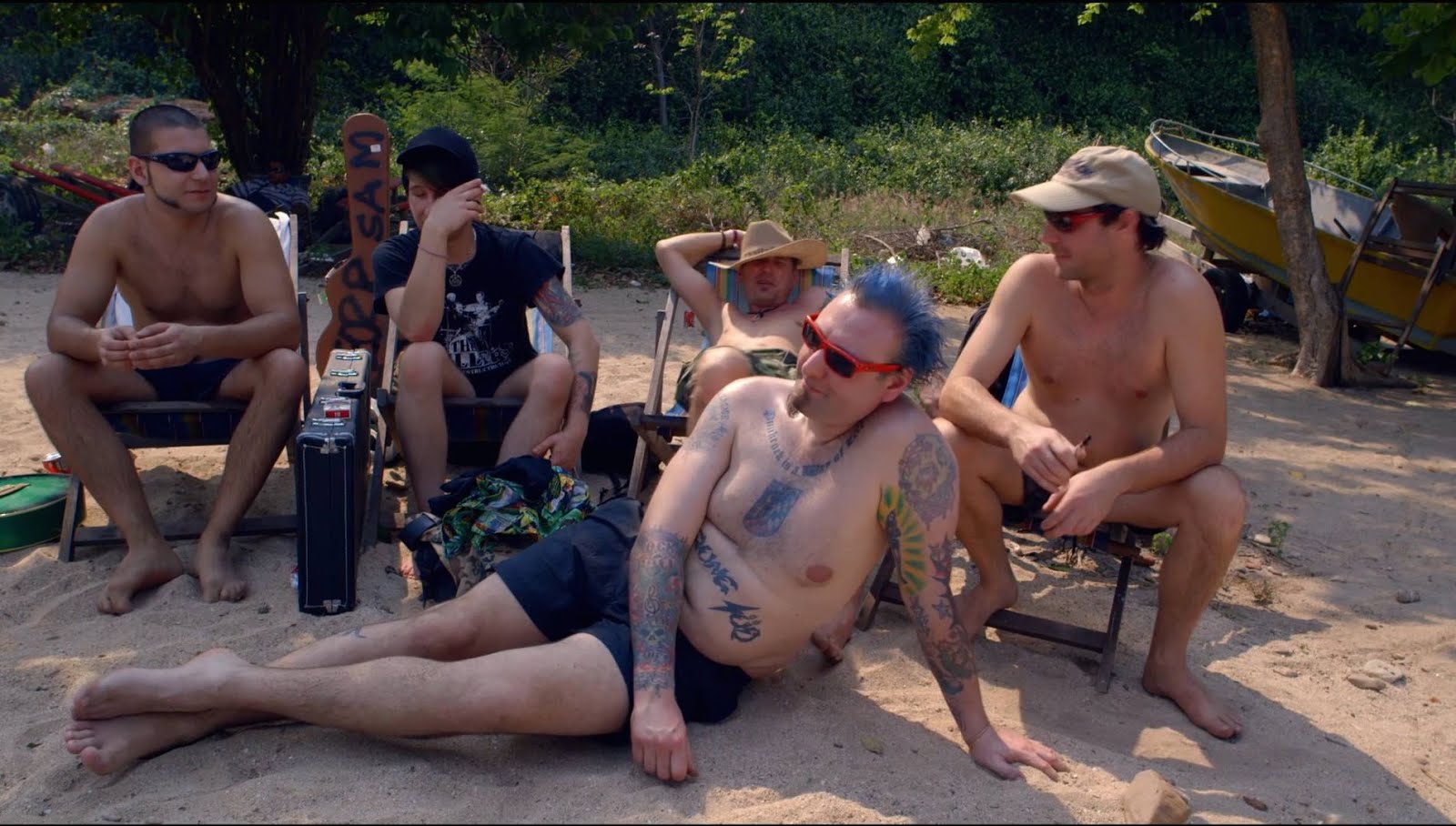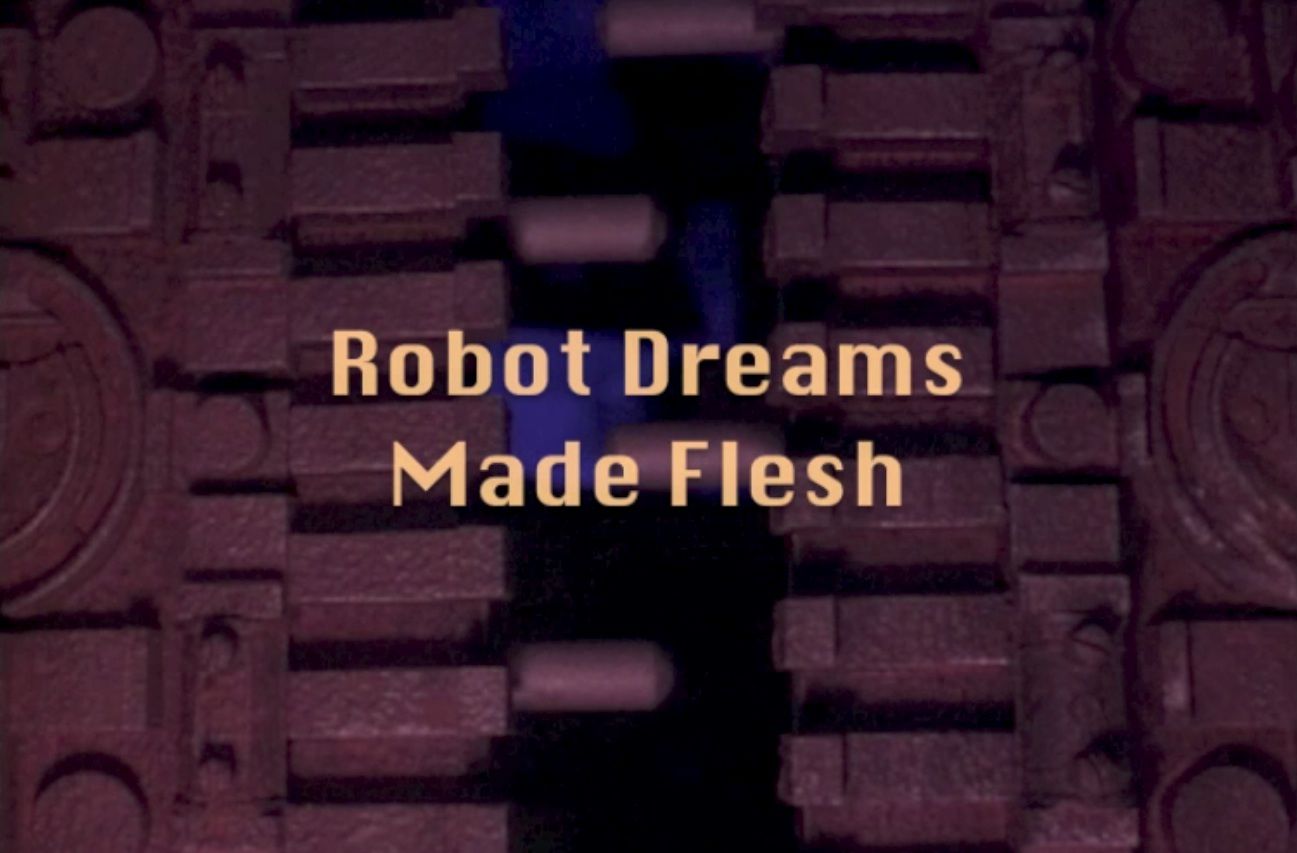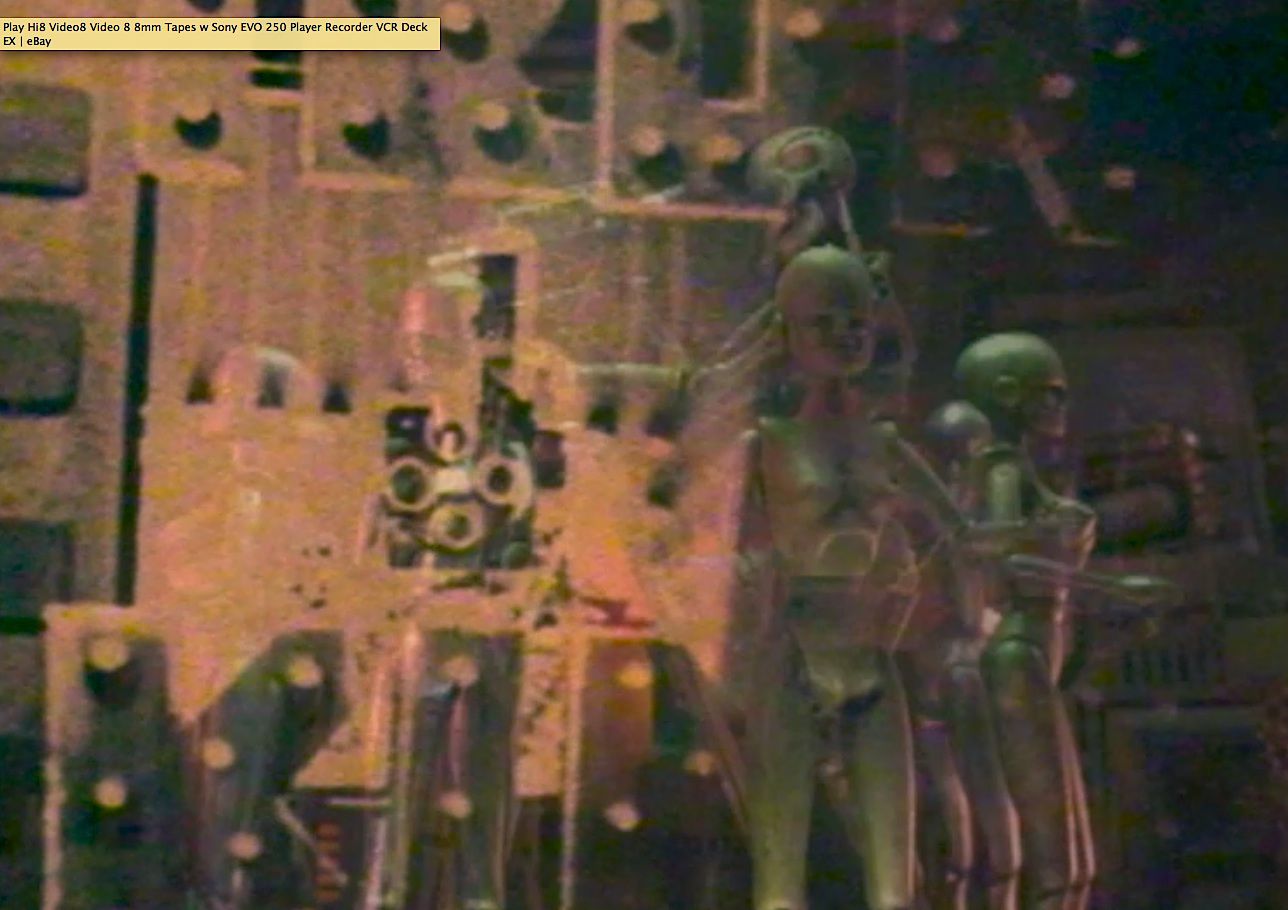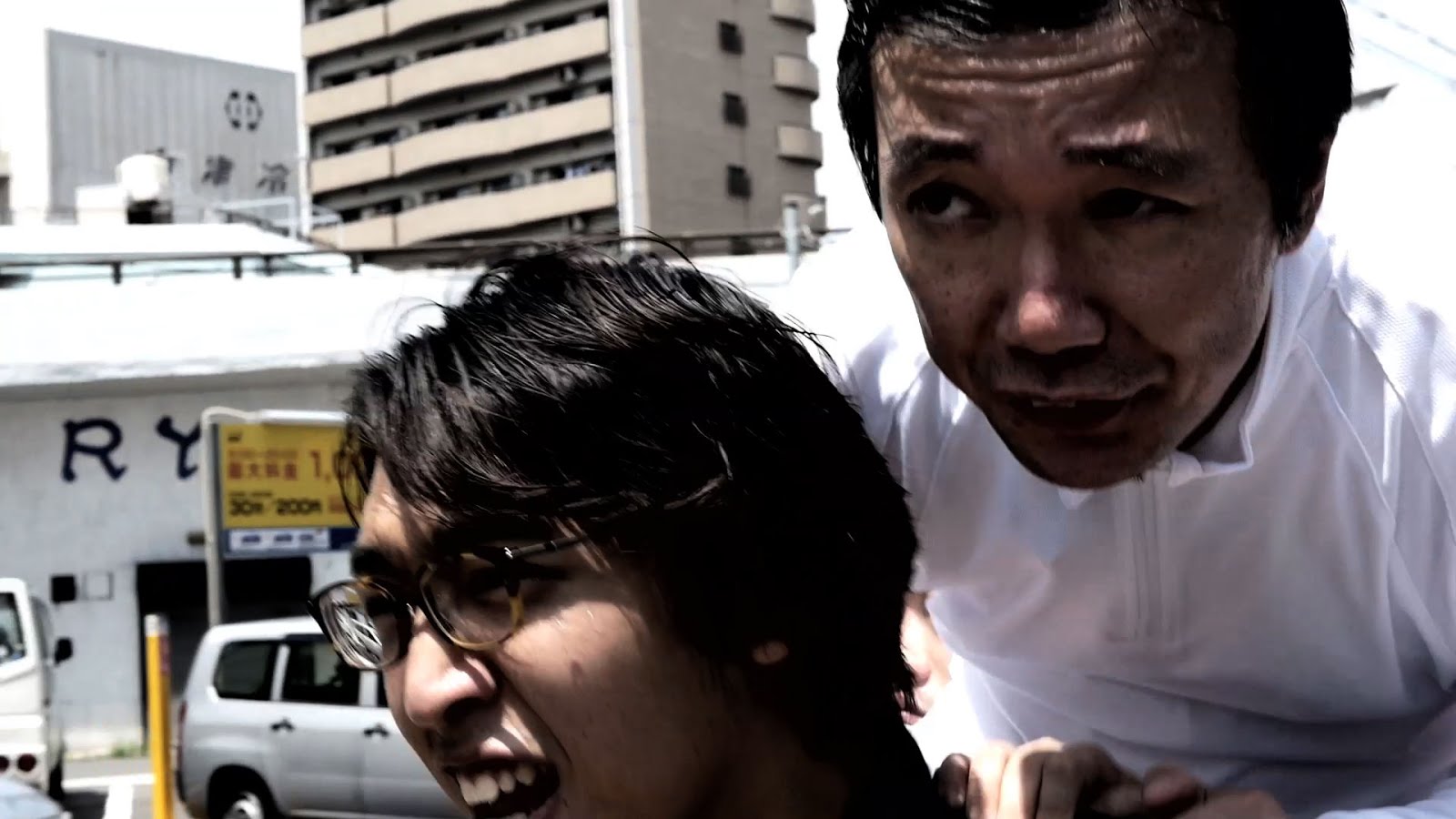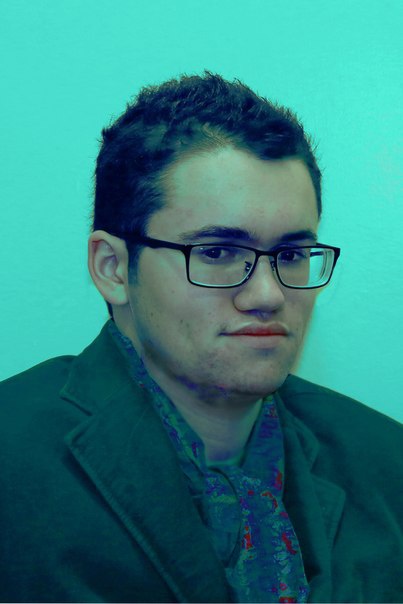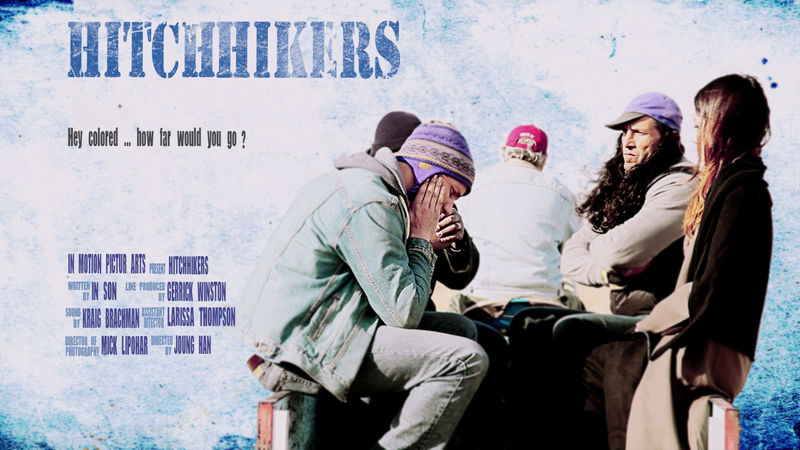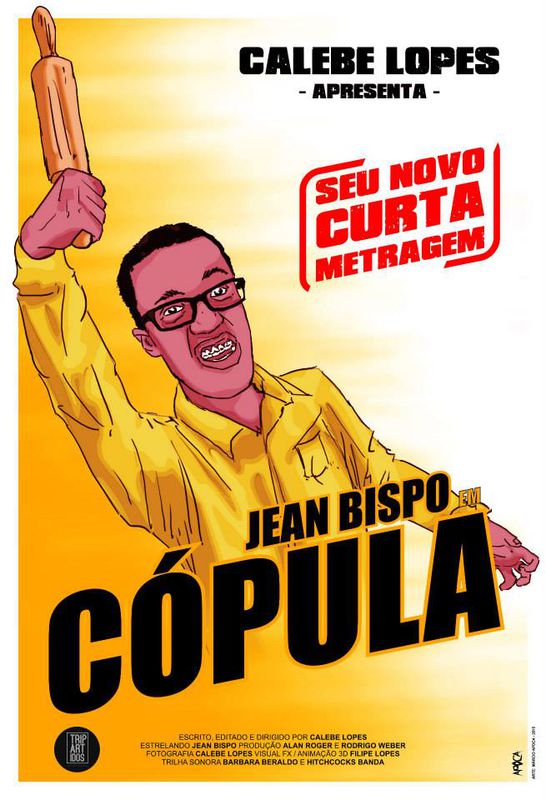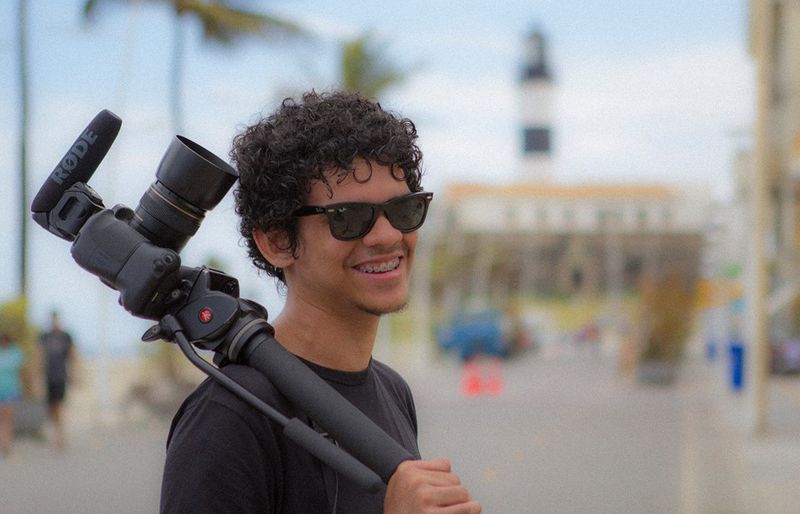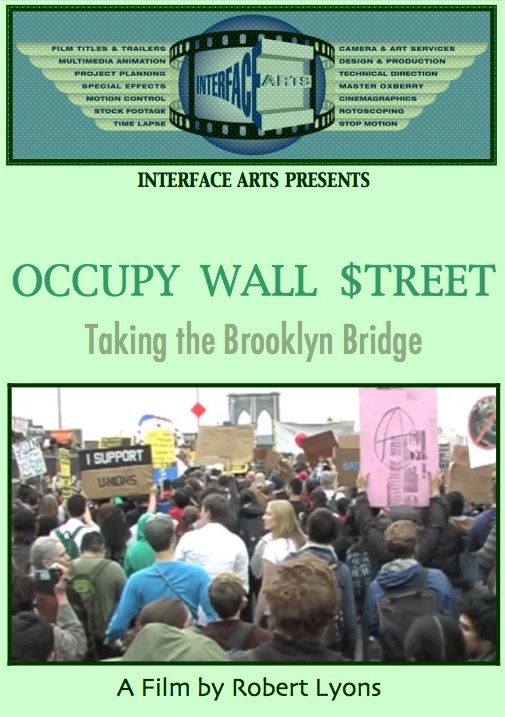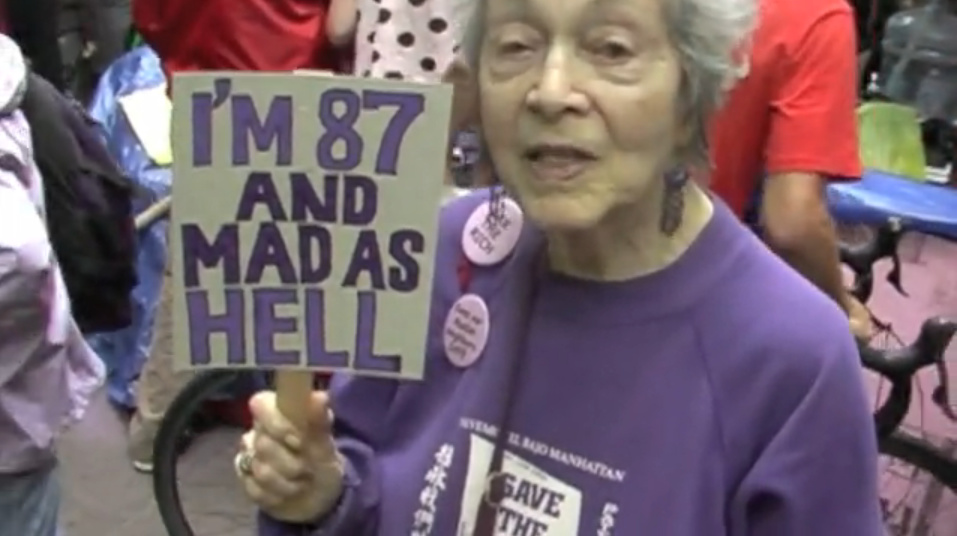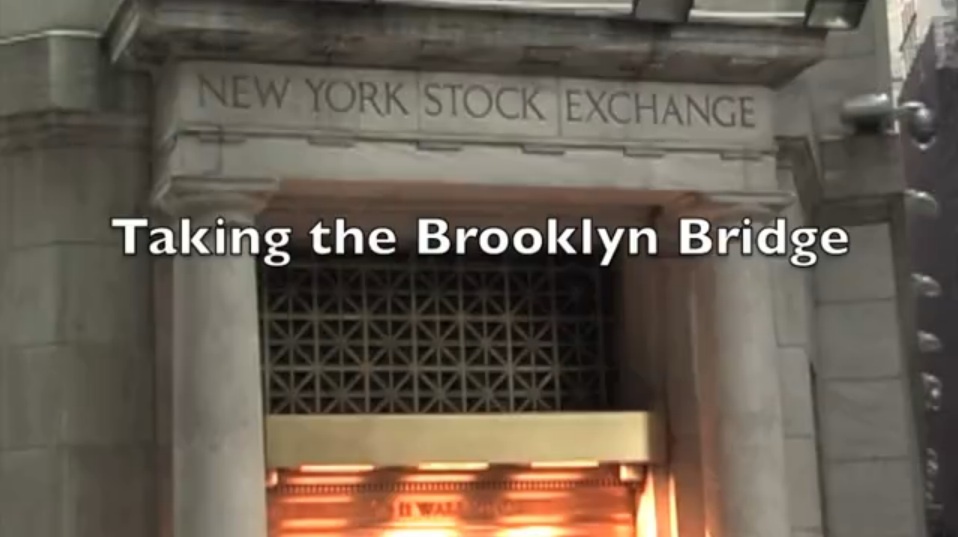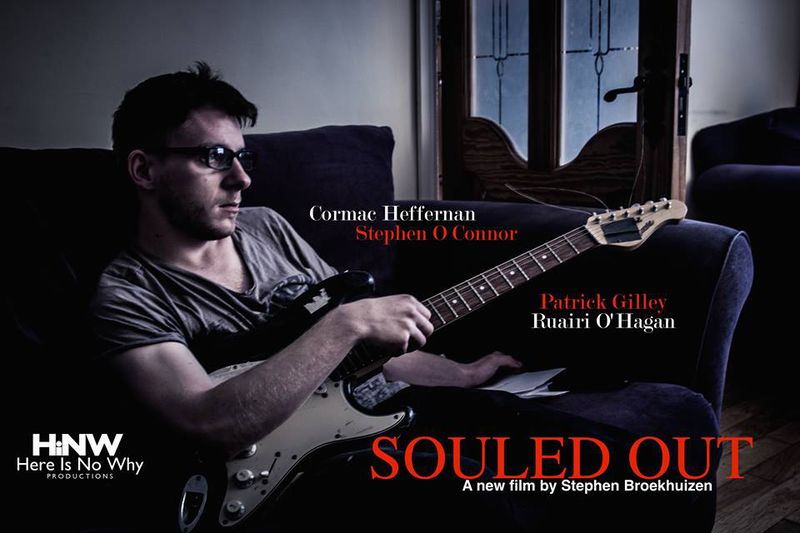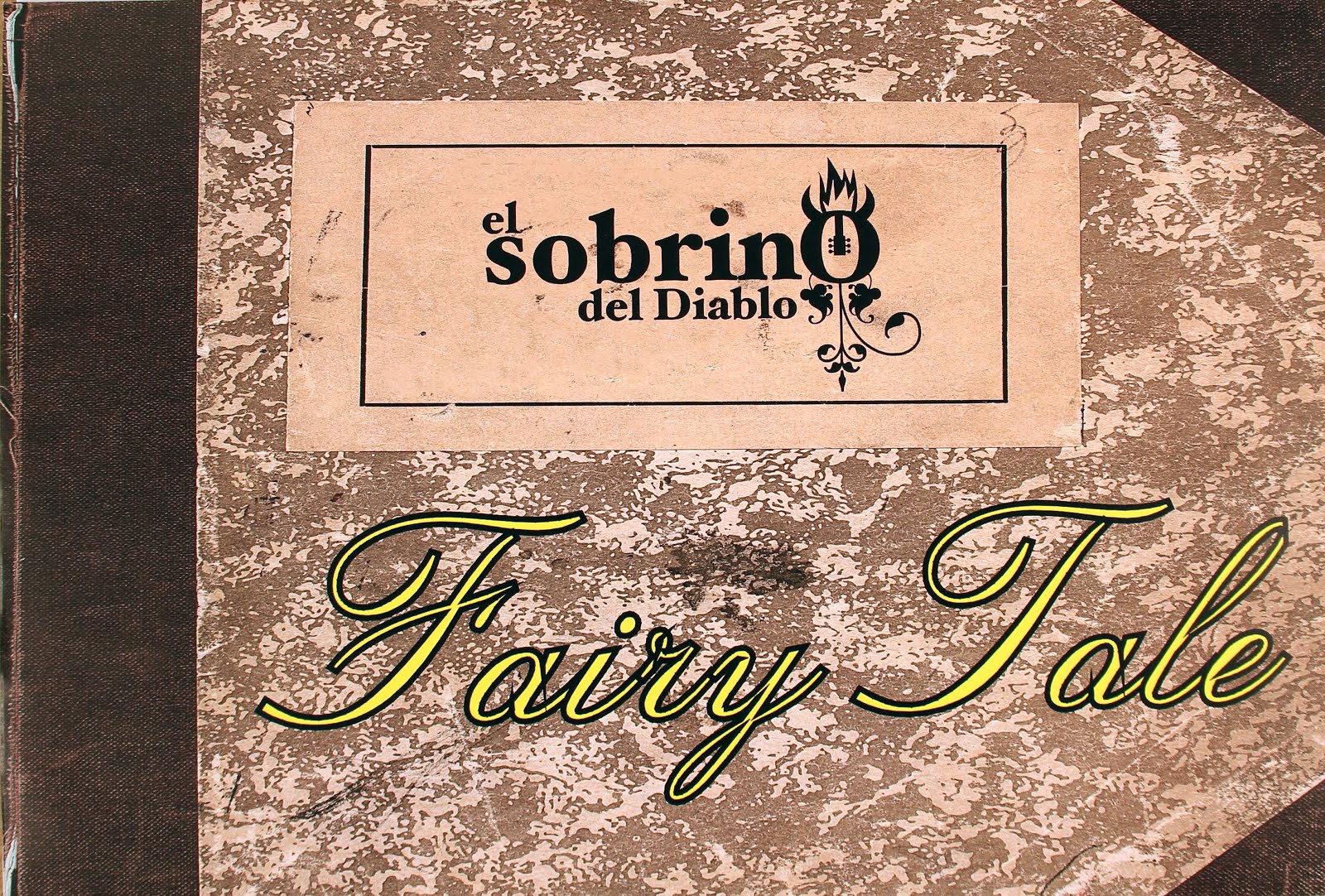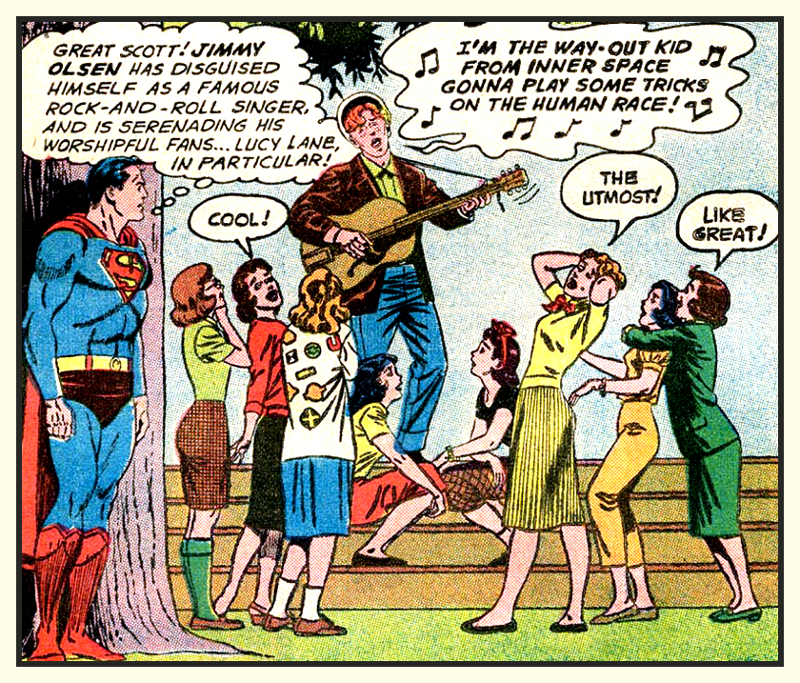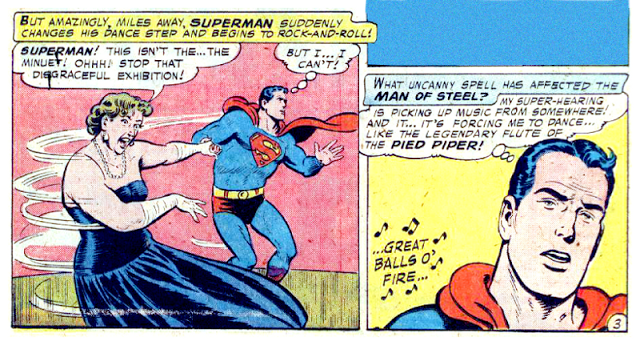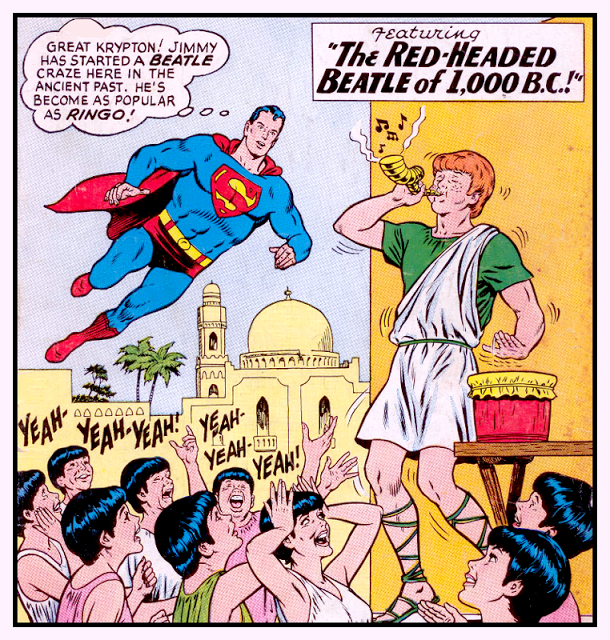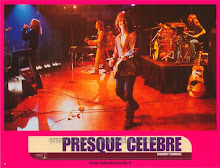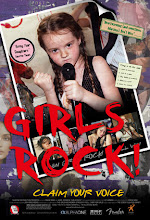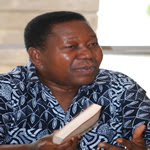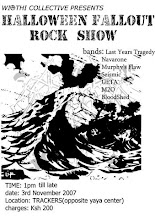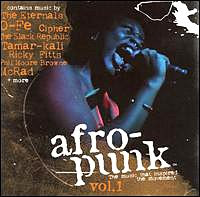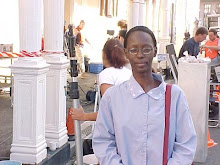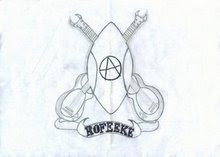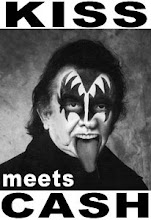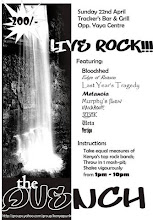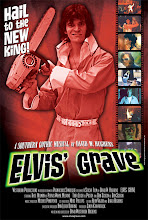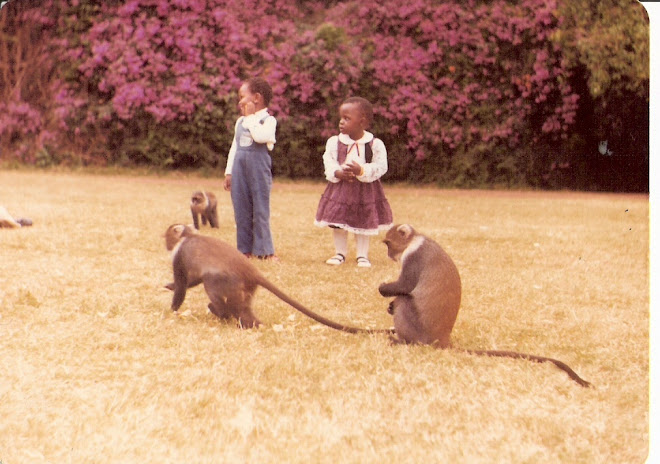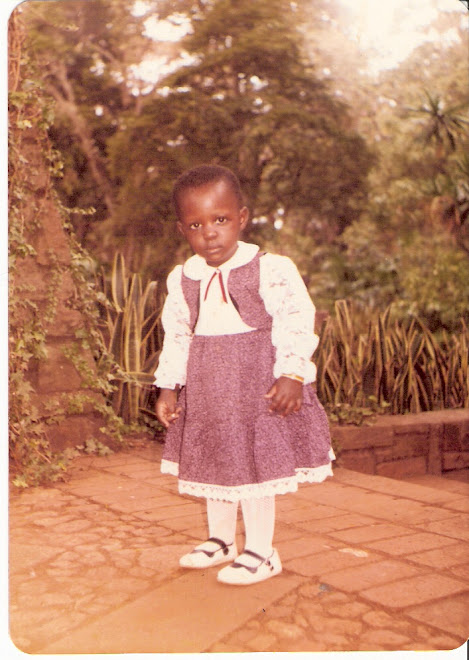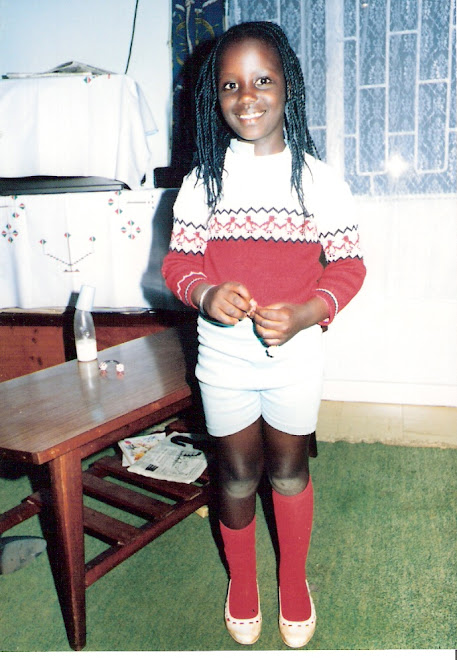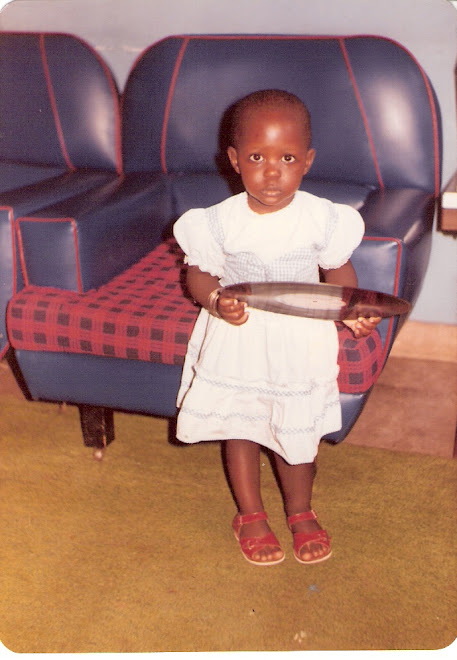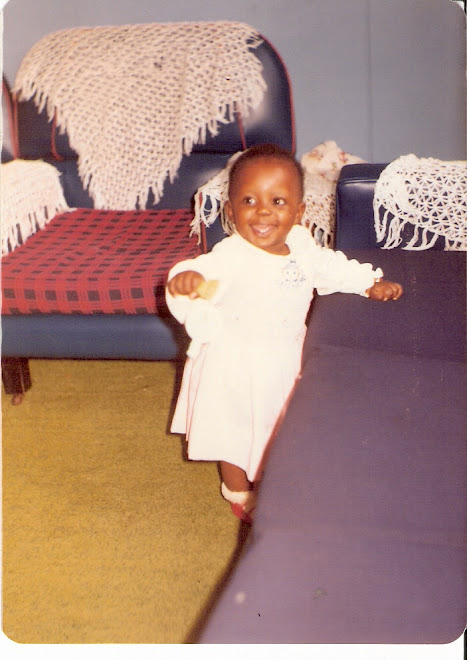ROFFEKE: What lessons did you learn from carrying out the Kickstarter campaign for "The music stops here"?
Alec: I learned to allow people to buy into the project, rather than just donate money. By this, I mean we hosted events where donors and potential donors could see the work in progress, feeling a part of an ongoing project that they could see and help progress and be a part of. It's also important to keep the donors updated on your progress, not just take the money and say 'thanks, cya'. You have to remember that were it not for their kind donations, your film wouldn't be going beyond your laptop screen.
ROFFEKE: In the BBC radio Manchester interview, you admitted that you were "losing money" because of this project. What priceless things have you gained from making this documentary?
Alec: This is our first documentary, both for myself and (Director) Adam Farkas. Technically we learned a lot about film-making and production, though this is quite obvious, I guess. From the Star and Garter I learned that culture means much more than anything else in this city. Manchester is a passionate city and at the heart of that passion are two things: football and music. I gained an even greater love for my city and for the people that make it so special; the unique characters, the creatives, the down-to-earth spirits and most of all, the people who keep enjoying the city's nightlife and don't give up on the music.
ROFFEKE: Which scenes would you have loved to be included in the final cut of the documentary?
Alec: There is a scene about the 'Smile' indie disco, which many will claim is the longest running indie disco in the city that, essentially, can claim to have invented indie rock. We just couldn't fit this into the shorter version of The Music Stops Here, but we will look to include this in a later form. There are also some great scenes which go into the local political situation that has led to the due closure of The Star and Garter, which add real depth, but might be a bit too overwhelming for a casual non-Manchester viewer.
ROFFEKE: If the "soul" of the Star and Garter could speak, what do you think it would say?
Alec: "Turn it down!"
ROFFEKE: Advice for aspiring documentary producers?
Alec: Just pick up the camera, find the right story and go for it. Don't worry so much about the technical side. People will forgive some dodgy camera angles or sound glitch, but they won't forgive a boring story. Also, when people say "No" to speaking on camera, try again another couple of times. Some of the best interviews you'll do are with initially very reluctant subjects. Equally, some of the worst interviews will be with people who have too much to say!
(Like Placebo:Alt. Russia, The Music Stops Here touches on SDG 11 and SDG 16: "Make cities and human settlements inclusive, safe, resilient and sustainable" and "Promote peaceful and inclusive societies for sustainable development, provide access to justice for all and build effective, accountable and inclusive institutions at all levels." Under SDG 11, target 11.4 stands out: "Strengthen efforts to protect and safeguard the world's cultural and natural heritage.")
Tuesday, January 23, 2018
Interview: Maxime Guérin - Director of "Save Me a Dance"
ROFFEKE: Why did you pick "1789" by Fuzzy Vox for the opening scenes of the film?
Maxime: A friend of mine made me discover Fuzzy Vox which is a "not so young" band from the suburb of Paris. I really loved their music that can be defined as a perfect mix between some pop Neo-punk such as The Hives and the old rockabilly standards. It's pretty bouncy and positive so when they accepted to lend me a few tunes, I immediately thought of "1789" as a very good opening credit song. It launches the movie in a rock'n roll and funny fashion and it drags the audience to the juvenile and reckless teenage atmosphere I was keen on creating.
ROFFEKE: The lyrics of "I'll be Gone" are very fitting for the theme of "Save me a dance". Did you consider the lyrics of the song when you picked it?
Maxime: It actually is a happy coincidence. The scene was horribly missing music and I added this tune to help the mise en scene and the suspense work. One can't imagine how a rockabilly song brings fun to a scene. Since the movie will mainly be seen by a French audience, I wasn't really paying attention to the lyrics. But when I listened to the song a second time, it became clear that the lyrics and the song were perfect for the scene. I hope it will help the movie catch the English speaking audience.
ROFFEKE: My favourite song in the film is "City of Quartz" by Nine Eleven. If you had to pick a song from a totally different genre for that scene, which song would you pick?
Maxime: Your question is really tricky since one of the main bets, if not the most engaging, was to use a dark hardcore song to cover the final sex scene. In a few festival screenings, some people left the room at this moment, missing the end of the short film. I totally own up for this choice of music which, in my opinion, transcribes perfectly the state of mind of these clumsy, furious and genuine teenagers. And to be honest with you, this bias was the very starting point of my project. So I really can't imagine any other type of song for that scene.
ROFFEKE: What are the advantages and disadvantages of both writing then directing your own film?
Maxime: This short film was a light project with a crew of friends, a young and vibrant cast and very little money involved. So I don't think it would have been possible and realistic to direct it without having written it first. It took me a very long time to get a final version of the script and to be glad and certain of what I wanted to tell through the characters. And even with all this subtle work I made mistake while directing the movie that gave me a hard time during the editing. So I don't see how the writer and the director could have been two different people for this movie.
ROFFEKE: Advice for aspiring writer-directors?
Maxime: Through the example of this short film I would advice anyone who wants to direct a movie with a strong bias and some fresh ideas to go for it. It's always worth it. A couple of years ago I spent almost all the money I had for this film, nowadays I'm not really missing the money, and I have directed a short film I'm proud of.
Maxime: A friend of mine made me discover Fuzzy Vox which is a "not so young" band from the suburb of Paris. I really loved their music that can be defined as a perfect mix between some pop Neo-punk such as The Hives and the old rockabilly standards. It's pretty bouncy and positive so when they accepted to lend me a few tunes, I immediately thought of "1789" as a very good opening credit song. It launches the movie in a rock'n roll and funny fashion and it drags the audience to the juvenile and reckless teenage atmosphere I was keen on creating.
ROFFEKE: The lyrics of "I'll be Gone" are very fitting for the theme of "Save me a dance". Did you consider the lyrics of the song when you picked it?
Maxime: It actually is a happy coincidence. The scene was horribly missing music and I added this tune to help the mise en scene and the suspense work. One can't imagine how a rockabilly song brings fun to a scene. Since the movie will mainly be seen by a French audience, I wasn't really paying attention to the lyrics. But when I listened to the song a second time, it became clear that the lyrics and the song were perfect for the scene. I hope it will help the movie catch the English speaking audience.
ROFFEKE: My favourite song in the film is "City of Quartz" by Nine Eleven. If you had to pick a song from a totally different genre for that scene, which song would you pick?
Maxime: Your question is really tricky since one of the main bets, if not the most engaging, was to use a dark hardcore song to cover the final sex scene. In a few festival screenings, some people left the room at this moment, missing the end of the short film. I totally own up for this choice of music which, in my opinion, transcribes perfectly the state of mind of these clumsy, furious and genuine teenagers. And to be honest with you, this bias was the very starting point of my project. So I really can't imagine any other type of song for that scene.
ROFFEKE: What are the advantages and disadvantages of both writing then directing your own film?
Maxime: This short film was a light project with a crew of friends, a young and vibrant cast and very little money involved. So I don't think it would have been possible and realistic to direct it without having written it first. It took me a very long time to get a final version of the script and to be glad and certain of what I wanted to tell through the characters. And even with all this subtle work I made mistake while directing the movie that gave me a hard time during the editing. So I don't see how the writer and the director could have been two different people for this movie.
ROFFEKE: Advice for aspiring writer-directors?
Maxime: Through the example of this short film I would advice anyone who wants to direct a movie with a strong bias and some fresh ideas to go for it. It's always worth it. A couple of years ago I spent almost all the money I had for this film, nowadays I'm not really missing the money, and I have directed a short film I'm proud of.
Labels:
Interview,
ROFFEKE OFFICIAL SELECTION,
short film
Review: Blurred Memories
Review by Joseph Ochieng(Intern)
Band: Shake The Deaf
Production: French Connection Films
Director: Joffrey Saintrapt
Actors: Tyler Parr, Kristi Ann Holt
The story, crafted by Joffrey Saintrapt, is about the life of an old man longing for the early days of his life. Moreover, this music video takes the viewer through a comparison of the then-versus-now of the man's life. The opening montage begins with fireworks then crosscuts help introduce the lead character (Tyler Parr) and the state of confusion he finds himself in. The Montage builds suspense as the viewer keeps guessing, while the events unfold. The character’s world is introduced by a montage of panning and tilting shots while he is still lying on a park bench, owing to the intrapersonal conflict he finds himself in, trying to unravel the circumstances which led to his current status.
The music starts from simple, melodious rock bits which escalate to hard rock as the viewer is thrust into the early life of this character. Joffrey Saintrapt has succeeded in the use of reverse motion during the flashback sequence. The actor enters into something like a daydream as he lies on the park bench. In the dream sequence, he leaps into his yesteryears, while all his idiosyncrasies play beforehand; he is energetic, swings himself at a park, meets with his love, walks in the streets, and goes to nightclubs. The reverse speed helps in getting into the mind of the character, as he is nostalgic about how he spent his youthful moments. In the flashback scenes, the reverse motion is accompanied by high pitched rock 'n' roll as well as the baroque tunes. The close-up shots of the words NO EXIT and EVICTION show that however much the character is on a journey of self-rediscovery, he might do only a little to get the answers he is seeking. Considering, he is aging, and life has reduced him to a pauper, a loner, and a binge alcoholic.
This is a music video that makes you want to pause in between the scenes to ingest every bit of the techniques used.
Band: Shake The Deaf
Production: French Connection Films
Director: Joffrey Saintrapt
Actors: Tyler Parr, Kristi Ann Holt
The story, crafted by Joffrey Saintrapt, is about the life of an old man longing for the early days of his life. Moreover, this music video takes the viewer through a comparison of the then-versus-now of the man's life. The opening montage begins with fireworks then crosscuts help introduce the lead character (Tyler Parr) and the state of confusion he finds himself in. The Montage builds suspense as the viewer keeps guessing, while the events unfold. The character’s world is introduced by a montage of panning and tilting shots while he is still lying on a park bench, owing to the intrapersonal conflict he finds himself in, trying to unravel the circumstances which led to his current status.
The music starts from simple, melodious rock bits which escalate to hard rock as the viewer is thrust into the early life of this character. Joffrey Saintrapt has succeeded in the use of reverse motion during the flashback sequence. The actor enters into something like a daydream as he lies on the park bench. In the dream sequence, he leaps into his yesteryears, while all his idiosyncrasies play beforehand; he is energetic, swings himself at a park, meets with his love, walks in the streets, and goes to nightclubs. The reverse speed helps in getting into the mind of the character, as he is nostalgic about how he spent his youthful moments. In the flashback scenes, the reverse motion is accompanied by high pitched rock 'n' roll as well as the baroque tunes. The close-up shots of the words NO EXIT and EVICTION show that however much the character is on a journey of self-rediscovery, he might do only a little to get the answers he is seeking. Considering, he is aging, and life has reduced him to a pauper, a loner, and a binge alcoholic.
This is a music video that makes you want to pause in between the scenes to ingest every bit of the techniques used.
Sunday, January 14, 2018
Interview: YJ Kim - writer/director of Chemical
ROFFEKE: What inspired you to write "Chemical?"
YJ KIM: Everyone needs a second chance in their life since we keep making mistakes unconsciously and continuously. The man in the film is me; he wants to have a second chance from the mistakes he has made so far in his life. The chemical in the film is a fantasy-like symbol of that second chance, as the man tries to re-start the relationship with the woman and in the end, the woman reacts with a smile, even though nothing can be changed for them and I would like to label this chemical as ‘hope’ or ‘second chance’.
ROFFEKE: What were the high points and low points of directing the film?
YJ KIM: High point: Dancing scene is the most powerful & imaginative scene from this film as the man and woman get over their trauma via dancing, which is what I love to show off to audiences.
Low points: I would have liked more balance between both the man's and woman’s stories, however, unfortunately, I could not do this due to time limitation and low budget.
ROFFEKE: "Sofia so far" by Goodnight Radio is such a good fit for the crazy dancing scene! What made you pick this particular song out of many other possible songs?
YJ KIM: "Sofia so far" is my favorite rock music song due to the amazing melody line, modern synth sound, powerful beat and rough voice. Thus, I always wanted to put this song in the most important moment of my life. As mentioned, the man in the film is me and the dancing scene is the most crucial moment for his second chance and there was no hesitation for me to put this awesome song in this film.
(ROFFEKE note: "Sofia so far" is part of the soundtrack for the Oscar-winning short film "Curfew")
ROFFEKE: Any advice for aspiring writer-directors?
YJ KIM: Making films is not easy. You could be depressed and stressed because of low budget, lack of inspiration and staff management etc. and so, taking a break is essential as much as diligence for making the film. A deep and good break will make you say ‘Shit, I need to make my next film because I can be better than that!’
ROFFEKE: Your favorite female directors?
YJ KIM: Zoe R. Cassavetes (It is such a pity that one cannot find even a single work of hers in South Korea as she is the best, no matter of male or female)
You can watch "Chemical" on the ROFFEKE OFFICIAL SELECTION channel, at 9.45pm Kenyan time.
Read Joseph Ochieng's review of "Chemical" here
YJ KIM: Everyone needs a second chance in their life since we keep making mistakes unconsciously and continuously. The man in the film is me; he wants to have a second chance from the mistakes he has made so far in his life. The chemical in the film is a fantasy-like symbol of that second chance, as the man tries to re-start the relationship with the woman and in the end, the woman reacts with a smile, even though nothing can be changed for them and I would like to label this chemical as ‘hope’ or ‘second chance’.
ROFFEKE: What were the high points and low points of directing the film?
YJ KIM: High point: Dancing scene is the most powerful & imaginative scene from this film as the man and woman get over their trauma via dancing, which is what I love to show off to audiences.
Low points: I would have liked more balance between both the man's and woman’s stories, however, unfortunately, I could not do this due to time limitation and low budget.
ROFFEKE: "Sofia so far" by Goodnight Radio is such a good fit for the crazy dancing scene! What made you pick this particular song out of many other possible songs?
YJ KIM: "Sofia so far" is my favorite rock music song due to the amazing melody line, modern synth sound, powerful beat and rough voice. Thus, I always wanted to put this song in the most important moment of my life. As mentioned, the man in the film is me and the dancing scene is the most crucial moment for his second chance and there was no hesitation for me to put this awesome song in this film.
(ROFFEKE note: "Sofia so far" is part of the soundtrack for the Oscar-winning short film "Curfew")
ROFFEKE: Any advice for aspiring writer-directors?
YJ KIM: Making films is not easy. You could be depressed and stressed because of low budget, lack of inspiration and staff management etc. and so, taking a break is essential as much as diligence for making the film. A deep and good break will make you say ‘Shit, I need to make my next film because I can be better than that!’
ROFFEKE: Your favorite female directors?
YJ KIM: Zoe R. Cassavetes (It is such a pity that one cannot find even a single work of hers in South Korea as she is the best, no matter of male or female)
You can watch "Chemical" on the ROFFEKE OFFICIAL SELECTION channel, at 9.45pm Kenyan time.
Read Joseph Ochieng's review of "Chemical" here
Labels:
Interview,
Love,
ROFFEKE OFFICIAL SELECTION
Review: Chemical
Review by Joseph Ochieng
Director: YJ Kim
Actors: Eunmin Kho, YJ Kim, Juhyun Son
The narrative is about a jilted lover seeking reunion with his ex-girlfriend. The Implied silence at the beginning of the film creates suspense and enhances the mood. A blank screen with the words of two characters having a conversation stirs questions in the viewer’s mind. Are they insurgents, are they chemical doctors, and are they scientists? After a few seconds, the two mates are revealed talking matters love over a drink.
Costume design matches with the initial moments of the story. The silent conversation on a blank screen superimposes the dark clothing of the characters when we meet them for the first time. The plot twists and we realize that the two friends are involved in a discussion about love, its intricacies, and characteristics. How the director wields his creativity to relay the message is strategic. The film pace changes from slow at the beginning to a quick montage in the middle revealing flashback sequence and the thoughts of the characters.
Transition to the significant events in the story is primarily enhanced by fading to black. In the second part, Eunmin is introduced. Her boyfriend calls her, and she agrees to meet him. During the date, the man pours the chemical in Eunmin’s drink. The pace increases again when Eunmin’s thoughts play before her eyes, in a fast montage. The visual effects help enhance the mood of the bar scene. The reality is contrasted with Eunmin’s thought through color correction. The director has succeeded in getting his audience glued to “Chemical” from the point of hitting the “play” to the final minutes. The fading to blank screens enhance act breaks, giving the viewer a moment to internalize the previous acts, and prepare for the next events. However, the fact that dialog propels the plot is the main undoing of “Chemical.” Subtlety and suspense could still be achieved through the thought-provoking actions in the flashback sequences.
Director: YJ Kim
Actors: Eunmin Kho, YJ Kim, Juhyun Son
The narrative is about a jilted lover seeking reunion with his ex-girlfriend. The Implied silence at the beginning of the film creates suspense and enhances the mood. A blank screen with the words of two characters having a conversation stirs questions in the viewer’s mind. Are they insurgents, are they chemical doctors, and are they scientists? After a few seconds, the two mates are revealed talking matters love over a drink.
Costume design matches with the initial moments of the story. The silent conversation on a blank screen superimposes the dark clothing of the characters when we meet them for the first time. The plot twists and we realize that the two friends are involved in a discussion about love, its intricacies, and characteristics. How the director wields his creativity to relay the message is strategic. The film pace changes from slow at the beginning to a quick montage in the middle revealing flashback sequence and the thoughts of the characters.
Transition to the significant events in the story is primarily enhanced by fading to black. In the second part, Eunmin is introduced. Her boyfriend calls her, and she agrees to meet him. During the date, the man pours the chemical in Eunmin’s drink. The pace increases again when Eunmin’s thoughts play before her eyes, in a fast montage. The visual effects help enhance the mood of the bar scene. The reality is contrasted with Eunmin’s thought through color correction. The director has succeeded in getting his audience glued to “Chemical” from the point of hitting the “play” to the final minutes. The fading to blank screens enhance act breaks, giving the viewer a moment to internalize the previous acts, and prepare for the next events. However, the fact that dialog propels the plot is the main undoing of “Chemical.” Subtlety and suspense could still be achieved through the thought-provoking actions in the flashback sequences.
Labels:
Joseph Ochieng,
Love,
Review,
ROFFEKE OFFICIAL SELECTION
Tuesday, January 2, 2018
Successful Film Festival Management
Happy new year everyone! New year, new beginnings, new intern!
ROFFEKE is honoured to have Joseph Ochieng as an intern. Joseph is a graduate from Kenyatta University. He majored in Screenwriting and Film Directing and minored in Audio-Visual editing, Film Festival Management, Film Adjudication, Sound design and video camera operations. Below is his first blog post for ROFFEKE.
Film festivals are events which bring together various film enthusiasts - both the established and budding film producers, directors, actors, actresses, and cinematographers - to watch a series of different genres of film in one or more cinemas or screening venues. Usually, a festival can be local or global with most being the latter.
For a festival manager, there are specific issues which if not given priority, a festival is likely to go into the gutter.
When putting up a film festival, the organizers should be cognizant of the theme on which all films should be hinged. For instance, ROFFEKE incorporates rock films, that is, films with clear rock 'n' roll themes or films with any theme but with a rock 'n' roll soundtrack. Festival organizers need to specify in time what they need the filmmakers to know about the festival.
The second question to ask yourself as a festival manager or organizer is what type of audience are you targeting with your festival? There could be a festival that is specifically for and about the victories and challenges of women (such as Udada Film Festival). A festival might be set up to address LGBTQ issues in the society or an organizer might want to put up a festival which screens films made to advocate for the rights of the millennial boy child.
Additionally, the success of a film festival depends on originality. Before putting out a festival to the multitudes out there whether it is local or internationally, do in-depth research to avoid redundancies. Every film festival should have aspects of subtlety and ingenuity. The last thing you want to do is ape the previous festival you attended and try to put up exactly that. Implement your own ideas to realize your unique vision.
The screening venue is also an important aspect to consider. Which city’s counties or theatres are you likely to woo the maximum number of the festival goers? Does your excellent venue have proximity to transport system, shops, and accommodation centers or is it near the country’s most polluted area? The superb site will attract more film enthusiasts; the average venue will be filled with only a limited number of people. Consequently, a venue also depends on the theme of the festival. Films which narrate about life in the slums might just reach the target people when screened in slum areas. (Slum Film Festival is a good example of one such film festival.)
A festival manager should source for necessary sponsors, donors, and funders who can avail finances, equipment, tickets, help in the festival advertising and take care of any other logistics. Indeed, even the world’s established film festivals have sponsors who give them necessary assistance during the festival screenings.
It is commendable to provide the information about the festival calendar including official film festival submission dates, the preliminary and final deadlines and the proper screening, judging and awarding days. Locking filmmakers in a puzzle where they are oblivious to the exact festival dates and deadlines is very unprofessional. Clear communication concerning the official festival calendar allows the filmmakers to prepare themselves for doing final touches on their films, hustling for the submission fees and arranging travel and accommodation plans. There is no magic wand required for this, just strategic planning and management.
There is need to establish a good rapport with film distributors. Do a good background check of the films that your team of jurors has given the green light. Do they have exclusive distributor agreements which your festival should know about? You cannot afford to plan the festival for a whole year then get flagged by a distributor for screening films which you do not have permission from the owners/distributors. Some distributors choose specific festivals for the movie they are in charge of so even if it is the producer or the star who submitted the film, ensure the film is free from lawsuits.
A festival should have a team committed to overseeing successful selection, screenings, awards, advertisements, bookings and extra logistics. As a festival manager, you need to do appropriate staffing for your fabulous event. The festival director needs to have a clear vision for the whole team and work closely with all the departments to ensure the smooth running of the festival. Furthermore, units like advertising, venue bookings, accounting department, licensing, transport of guests, equipment, emergency, masterclasses and workshops, food and any other logistics all require appropriate departmental heads. You need to thoroughly work with the screening department to ensure the projectors are in excellent condition; the screens are working, lighting is okay, the public address has no hitches, the film aspect ratios enable them to be projected on wide screens or cinemascope, etc.
A festival manager needs to have the license to all of the screening venues. Get the permission to use all the places to avoid being at loggerheads with the authorities. Your guests cannot come all the way from their home counties or countries then fail to watch the movies because you did not do your homework by booking the venue in time and paying the required fee!
Finally, how do you store films that the festival will screen to the public? Do you have enough storage devices like large hard drives and computers? You might want to argue that filmmakers need to carry copies of their works, but well, sometimes people don’t want to bring DVDs or flash drives to movie theatres.
Appropriate planning and strategic management should form an integral part of any film festival. Before a festival runs, the managers should do a good job regarding publicity, excellent communication, funds management, transport system and securing of venues. Most importantly, a film festival should be devoid of any a form of favoritism. Awards should be given to the filmmakers who deserve them, not those who paid something extra. Proper management ensures fewer migraines before, during and after the festival.
- Joseph Ochieng(jphochieng971@gmail.com)
ROFFEKE is honoured to have Joseph Ochieng as an intern. Joseph is a graduate from Kenyatta University. He majored in Screenwriting and Film Directing and minored in Audio-Visual editing, Film Festival Management, Film Adjudication, Sound design and video camera operations. Below is his first blog post for ROFFEKE.
Film festivals are events which bring together various film enthusiasts - both the established and budding film producers, directors, actors, actresses, and cinematographers - to watch a series of different genres of film in one or more cinemas or screening venues. Usually, a festival can be local or global with most being the latter.
For a festival manager, there are specific issues which if not given priority, a festival is likely to go into the gutter.
When putting up a film festival, the organizers should be cognizant of the theme on which all films should be hinged. For instance, ROFFEKE incorporates rock films, that is, films with clear rock 'n' roll themes or films with any theme but with a rock 'n' roll soundtrack. Festival organizers need to specify in time what they need the filmmakers to know about the festival.
The second question to ask yourself as a festival manager or organizer is what type of audience are you targeting with your festival? There could be a festival that is specifically for and about the victories and challenges of women (such as Udada Film Festival). A festival might be set up to address LGBTQ issues in the society or an organizer might want to put up a festival which screens films made to advocate for the rights of the millennial boy child.
Additionally, the success of a film festival depends on originality. Before putting out a festival to the multitudes out there whether it is local or internationally, do in-depth research to avoid redundancies. Every film festival should have aspects of subtlety and ingenuity. The last thing you want to do is ape the previous festival you attended and try to put up exactly that. Implement your own ideas to realize your unique vision.
The screening venue is also an important aspect to consider. Which city’s counties or theatres are you likely to woo the maximum number of the festival goers? Does your excellent venue have proximity to transport system, shops, and accommodation centers or is it near the country’s most polluted area? The superb site will attract more film enthusiasts; the average venue will be filled with only a limited number of people. Consequently, a venue also depends on the theme of the festival. Films which narrate about life in the slums might just reach the target people when screened in slum areas. (Slum Film Festival is a good example of one such film festival.)
A festival manager should source for necessary sponsors, donors, and funders who can avail finances, equipment, tickets, help in the festival advertising and take care of any other logistics. Indeed, even the world’s established film festivals have sponsors who give them necessary assistance during the festival screenings.
It is commendable to provide the information about the festival calendar including official film festival submission dates, the preliminary and final deadlines and the proper screening, judging and awarding days. Locking filmmakers in a puzzle where they are oblivious to the exact festival dates and deadlines is very unprofessional. Clear communication concerning the official festival calendar allows the filmmakers to prepare themselves for doing final touches on their films, hustling for the submission fees and arranging travel and accommodation plans. There is no magic wand required for this, just strategic planning and management.
There is need to establish a good rapport with film distributors. Do a good background check of the films that your team of jurors has given the green light. Do they have exclusive distributor agreements which your festival should know about? You cannot afford to plan the festival for a whole year then get flagged by a distributor for screening films which you do not have permission from the owners/distributors. Some distributors choose specific festivals for the movie they are in charge of so even if it is the producer or the star who submitted the film, ensure the film is free from lawsuits.
A festival should have a team committed to overseeing successful selection, screenings, awards, advertisements, bookings and extra logistics. As a festival manager, you need to do appropriate staffing for your fabulous event. The festival director needs to have a clear vision for the whole team and work closely with all the departments to ensure the smooth running of the festival. Furthermore, units like advertising, venue bookings, accounting department, licensing, transport of guests, equipment, emergency, masterclasses and workshops, food and any other logistics all require appropriate departmental heads. You need to thoroughly work with the screening department to ensure the projectors are in excellent condition; the screens are working, lighting is okay, the public address has no hitches, the film aspect ratios enable them to be projected on wide screens or cinemascope, etc.
A festival manager needs to have the license to all of the screening venues. Get the permission to use all the places to avoid being at loggerheads with the authorities. Your guests cannot come all the way from their home counties or countries then fail to watch the movies because you did not do your homework by booking the venue in time and paying the required fee!
Finally, how do you store films that the festival will screen to the public? Do you have enough storage devices like large hard drives and computers? You might want to argue that filmmakers need to carry copies of their works, but well, sometimes people don’t want to bring DVDs or flash drives to movie theatres.
Appropriate planning and strategic management should form an integral part of any film festival. Before a festival runs, the managers should do a good job regarding publicity, excellent communication, funds management, transport system and securing of venues. Most importantly, a film festival should be devoid of any a form of favoritism. Awards should be given to the filmmakers who deserve them, not those who paid something extra. Proper management ensures fewer migraines before, during and after the festival.
- Joseph Ochieng(jphochieng971@gmail.com)
Subscribe to:
Posts (Atom)




